Robbie Pryor’s Final Column: The Meaning of Life, Part 3 . . . Page 31
A Monthly Publication of the Knoxville Bar Association | June 2025


Robbie Pryor’s Final Column: The Meaning of Life, Part 3 . . . Page 31
A Monthly Publication of the Knoxville Bar Association | June 2025

DON’T MISS THESE KBA CLE PROGRAMS IN JUNE & JULY!

Mediating Employment Matters: From Settlement Offers, to Attorneys' Fees, to Tax Status
Tuesday, June 10, 11 a.m. - 12 p.m. | Zoom Webinar
Chris W. McCarty, Lewis Thomason, P.C.
Presented by the KBA ADR Section and Sponsored by PhoneNinjas AI (phoneninjas.com) 1 hour of General CLE & 1 hour of General CME


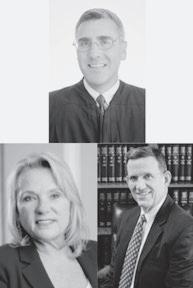

Current Order of Protection Issues
Friday, June 27 | CLE 4-5 p.m. | Family Law Section Social 5-7 p.m. | Lewis Thomason, P.C. , Knoxville Office and Mediation Center
Hon. Gregory S. McMillan, Circuit Court, Div. IV, Jo Ann Lehberger, Knoxville Family Law and Steve Sharp, Sharp & Attanasio 1 hour of General CLE
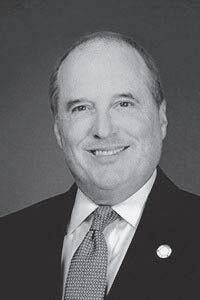


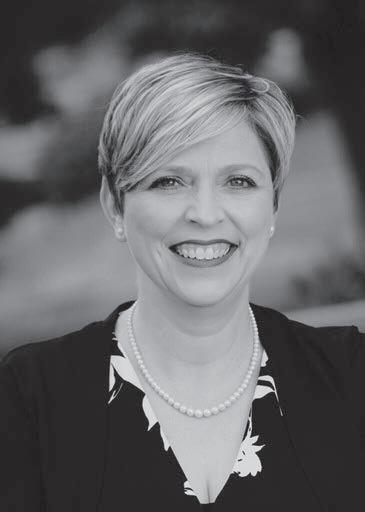
Legislative Update 2025
Tuesday, July 8, 12-1 p.m. | Zoom Webinar
Stephanie D. Coleman and J. Douglas Overbey, both with Owings, Wilson & Coleman 1 hour of General CLE
Chapter 7 Trustee Roundtable
Friday, July 11 | 3-4 p.m. CLE, City County Building, Main Assembly Room | 4:30-6 p.m. Bankruptcy Section Social at Chesapeake’s Downtown
Heather Banks, Mostoller, Stulberg, Allen, Tippett & Banks; Ryan E. Jarrard, Quist, Fitzpatrick & Jarrard, PLLC; F. Scott Milligan, F. Scott Milligan, Attorney; Ann R. Mostoller, Mostoller, Stulberg, Allen, Tippett & Banks; M. Aaron Spencer, Woolf, McClane, Bright, Allen & Carpenter, PLLC
Presented by the KBA Bankruptcy Section 1 hour of General CLE


Walk This Way (In a Straight Line?): DUI investigation & Standardized Field Sobriety Testing Wednesday, July 16 | 5-6 p.m. CLE | 7 p.m. One Knox Soccer | Covenant Health Park
Mitch Eisenberg, District Attorney General, 6th Judicial District & Jeff Whitt, Knox Defense 1 hour of General CLE
Calling ALL Lawyers: Help us Respond to the New Restoration of Citizenship Rights Law Thursday, July 17, 12-1:30 p.m. | Zoom Webinar
1.5 hours of Dual CLE
Legislative Update: A New Look for the Tennessee Expungement Statute
Thursday, July 24, 12-1 p.m. | Zoom Webinar
1 hour of Dual CLE
Joy Radice, University of Tennessee College of Law and Tomi Robb, Legal Aid Society of Middle Tennessee and the Cumberlands

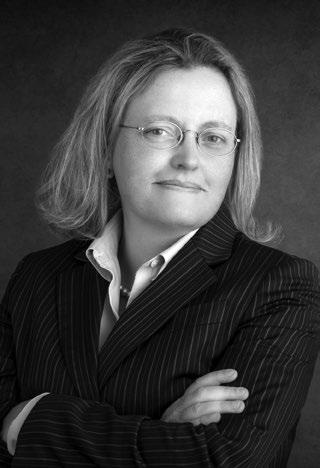
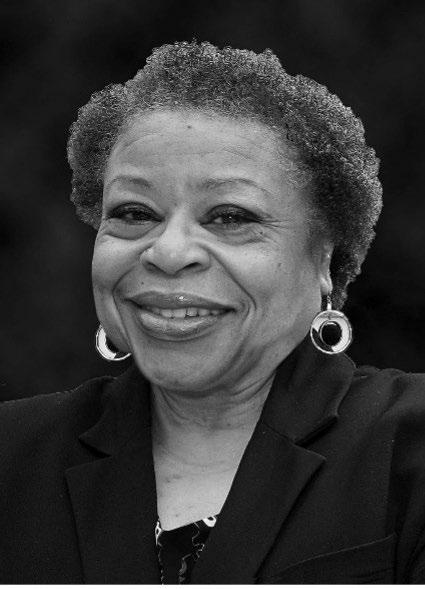

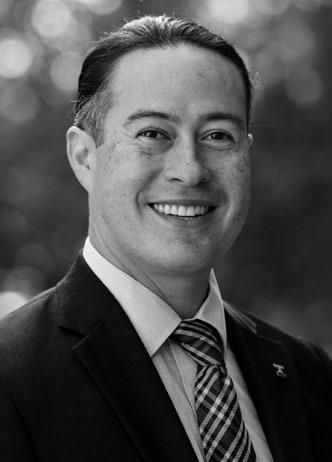
KBA Board of Governors
Courteney M. Barnes-Anderson
R. Kim Burnette
Melissa B. Carrasco
Meagan Collver
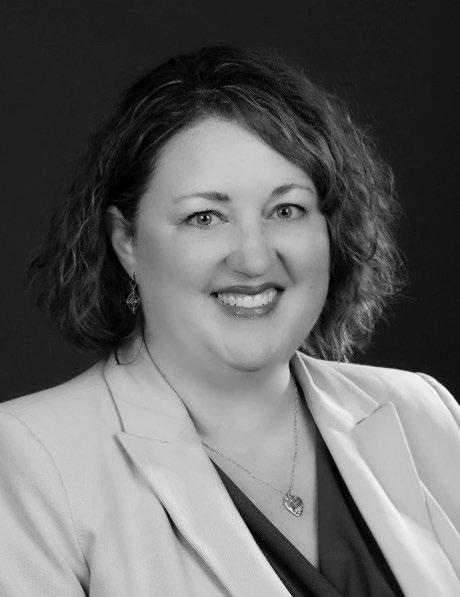
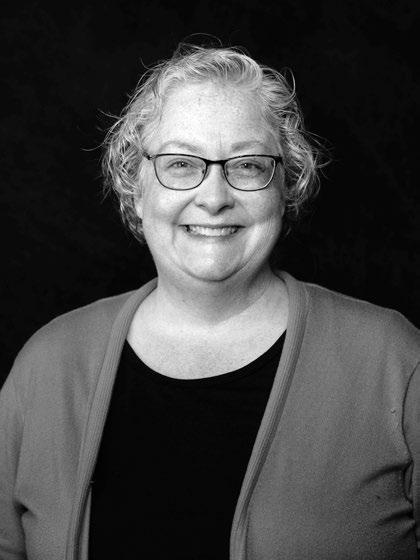
Samuel K. Lee
T. Mitchell Panter
M. Samantha Parris
Courtney Epps Read
Charles S.J. Sharrett


James T. Snodgrass
James R. Stovall
C. Scott Taylor
Alicia J. Teubert

37902
865-522-6522 Fax: 865-523-5662 www.knoxbar.org
DICTA is published monthly (except July) by the Knoxville Bar Association. It is designed to offer information of value to members of the local bar association. The news and features should illustrate the issues affecting the bar and its members. The opinions expressed do not necessarily represent those of the Knoxville Bar Association.
All articles submitted for publication in DICTA must be submitted in writing and in electronic format (via e-mail attachment). Exceptions to this policy must be cleared by KBA Executive Director Tasha Blakney (522-6522).
Publications Committee
Executive Editor Sarah Booher
Executive Editor Wade H. Boswell, II
Executive Editor Melissa B. Carrasco
Executive Editor Summer McMillan
Sherri Alley
Parker Bohne
Elizabeth B. Ford
Joseph G. Jarret
F. Regina Koho
Matthew R. Lyon
Robin McMillan
Angelia Morie Nystrom
Katheryn Murray Ogle
Bridget Pyman
Cathy Shuck
Jimmy Snodgrass
Eddy Smith
Grant Williamson
Managing Editor Tasha C. Blakney
KBA Executive Director
To Everything . . . There is a Season
At-Will Employees Can be Fired for Petitioning Legislators
in Ethics
in Settlement Agreements
Counsel How Much Educational Benefit is There in Grabbing Coffee?
There is no additional charge for membership in any section, but in order to participate, your membership in the KBA must be current. To have your name added to the section list, please contact the KBA office at 865-522-6522 or send an email to membership@knoxbar.org.
The ADR Section plans regular CLE throughout the year. Join the ADR Section for the “Mediating Employment Matters: From Settlement Offers, to Attorneys’ Fees, to Tax Status” CLE program scheduled for June 10. If you have a CLE program topic or speaker suggestions, please contact the ADR Section Chairs Joe Jarret (566-5393) or Betsy Meadows (540-8777).
The Bankruptcy Section plans CLE programs and helps coordinate volunteers for the Pro Bono Debt Relief Clinics. The next Pro Bono Debt Relief Clinic will be held on June 28, and volunteer registration is available at www.knoxbar.org. Mark your calendars for the upcoming Chapter 7 Trustee Roundtable CLE program on July 11. A reception at Chesapeake’s will follow the event. If you have a CLE program topic or speaker suggestions, please contact the Bankruptcy Section Chairs Greg Logue (2151000), Kevin Newton (588-5111), or Shanna Fuller Veach (545-4284).
The Corporate Counsel Section provides attorneys employed by a corporation or who limit their practice to direct representation of corporations with an opportunity to meet regularly and exchange ideas on issues of common concern. If you would like to know how you can get involved or have suggestions for CLE topics, please contact Section Chairs David Headrick (363-9181) or Marcia Kilby (362-1391).
The KBA Criminal Justice Section represents all attorneys and judges who participate in the criminal justice system in Knox County. If you have suggestions for CLE topics, please contact Section Chairs Joshua Hedrick (524-8106) or Sarah Keith (457-5640).
The Employment Law Section is intended for management and plaintiffs’ counsel, in addition to inhouse and government attorneys. If you have a program topic or speaker suggestions, please contact the Employment Law Section Chairs Howard Jackson (615-574-6702) or Tim Roberto (691-2777).
The Environmental Law Section provides a forum for lawyers from a variety of backgrounds, including government, corporate in-house, and private firm counsel. If you have suggestions for CLE topics, please contact Section Chairs Catherine Anglin (804-3741), Kendra Mansur (771-7192), or Jimmy Wright (637-3531).
The Family Law Section has speakers on family law topics or provides the opportunity to discuss issues relevant to family law practice. Join the Family Law Section for the “Current Order of Protection Issues” CLE program scheduled for June 27. After the program, enjoy a social gathering sponsored by the section from 5 to 7 p.m. at Lewis Thomason’s Knoxville Office & Mediation Center. If you are interested in getting involved or have suggestions for CLE topics, contact Section Chairs Blair Kennedy (539-3515) or Laura Wyrick (297-5511).
The Government & Public Service Lawyers Section is open to all lawyers employed by any governmental entity, state, federal, or local, including judicial clerks and attorneys with legal service agencies. If you are interested in getting involved or have suggestions for CLE topics, contact Section Chairs Ron Mills (215-2050) or Mitchell Panter (545-4167).
The Juvenile Court & Child Justice Section has speakers on juvenile law topics or provides the opportunity to discuss issues relevant to juvenile law practice. If you have suggestions for CLE topics, please contact Section Chairs Justin Pruitt (215-6440) or Mike Stanuszek (766-4170).
The New Lawyers Section is for attorneys within their first three years of practice, and any KBA member licensed since 2023 will automatically be opted-in to the section. If you like to get involved in planning section activities, please contact Section Chairs Dalton Howard (546-0500) or Mari Jasa (546-7770).
The Senior Section schedules a luncheon with a guest speaker every quarter. If you have suggestions for future luncheon speakers, please contact Section Chairs Wayne Kline (292-2307) or Sam Rutherford (659-3833).
The goal of the Solo Practitioner & Small Firm Section is to provide and encourage networking opportunities and offer high quality CLE programs featuring topics that will help solo/small firm attorneys enhance and improve their practices and assist them with law office management challenges. If you have a program topic or speaker suggestions, please contact Section Chairs Tim Grandchamp (392-5936), Brittany Dykes (214-7869), or Stan Young (209-8034).
The Trusts & Estates Section features speakers on trust and estate planning topics and offers a forum to discuss key issues in estate practice. If you’d like to get involved or have suggestions for CLE topics or speakers, reach out to Section Chairs Carolyn Gilliam (966-4343) or Stacie Miller (546-7000).
By: Jonathan Cooper Knox Defense
We have reason to believe our legal system can maintain its independence!
Last month’s column addressed the White House’s memoranda and executive orders sanctioning named lawyers and the firms that employed, or had employed, these lawyers in what appeared to be an act of retribution for perceived grievances against the President or his political agenda. These actions had immediate effect. At least nine firms, some named in executive orders and some not, entered agreements with the White House to abandon their DEI initiatives and to pledge pro bono work for causes aligned with the administration’s interests.1
The bigger effect, however, was the message to all law firms whose clients have cases or causes opposed to the President’s agenda. As I stated last month, clients have no rights if there are no lawyers to advocate for them. Thus, executive action targeting law firms that advocate for politically unpopular clients represents a threat to the legal system and the Rule of Law.
Fortunately, it appears that the legal profession is responding swiftly to this infringement of democratic principles. First, individual lawyers at firms that signed agreements with the White House are resigning, and resigning noisily: “By capitulating today, Simpson Thacher joins several other historic, powerful, influential and well-resourced law firms in bending the knee and kissing the ring of authoritarianism.”2
Second, the legal community has united in condemning these Orders. Over 500 law firms signed on to a brief submitted in litigation challenging one executive order.3 “The looming threat posed by the Executive Order at issue in this case and the others like it is not lost on anyone practicing law in this country today: any controversial representation challenging actions of the current administration (or even causes it disfavors) now brings with it the risk of devastating retaliation.”4 The Deans of 79 law schools, including Georgetown, Cornell, Northeastern, and Fordham Schools of Law, issued an open letter condemning “any government efforts to punish lawyers or their firms based on the identity of their clients or for their zealous lawful and ethical advocacy.”5
Third, even the law firms that entered into agreements with the White House are attempting to re-establish their independence. Although their agreements pledge millions of dollars of pro bono work, some of these firms are now rejecting White House authority to dictate which clients must be represented.6
But the most important challenge to these executive orders has been presented in court. The law firms of Jenner & Block, WilmerHale, and Perkins Coie each filed legal challenges to the enforcement of these orders, and each obtained temporary restraining orders.7 Notably, U.S. District Judge Beryl Howell commented that the legal profession was “watching in horror” at what Perkins Coie was experiencing.8
Judge Howell has now struck down the executive order directed

at Perkins Coie, calling it an unconstitutional violation of clients’ rights to pick their own counsel and the firm’s due process protections.9
Judge Howell found the order to be “‘an unprecedented attack’ on the ‘foundational principles’ of the American judicial system. . . . It ‘stigmatizes and penalizes a particular law firm and its employees— from its partners to its associate attorneys, secretaries, and mailroom attendants—due to the Firm’s representation, both in the past and currently, of clients pursuing claims and taking positions with which the current President disagrees, as well as the Firm’s own speech.’”10
Thus, we have a reason to hope that our legal system has the capacity to protect our nation from an overreaching Executive Branch. Indeed, although “constitutional crisis” is often cited as a looming threat, I remain hopeful that the Rule of Law will hold and will rely on President Trump’s public assurances that he will follow court orders.
Nevertheless, each of us has a duty to remain vigilant. Lawyers have an obligation to speak out against attacks on the Rule of Law. We have an obligation to educate our community about the sanctity of our justice system, not just its theoretical value, but its real-life capacity to redress civil wrongs and guard citizens from unfair government overreach. As we continue to watch how this tension unfolds, I ask that you remember your responsibility to stand up for the Rule of Law.
1 David Thomas, Law Firms Defend Trump Deals in Letters to Democratic Lawmakers, ReuteRs (May 6, 2025), https://www.reuters.com/legal/government/ law-firms-defend-trump-deals-letters-democratic-lawmakers-2025-05-06/.
2 Sara Merken & Mike Scarcella, Law firms’ deals with Trump roil their staff, deepen industry rifts, ReuteRs, https://www.reuters.com/legal/government/law-firms-dealswith-trump-roil-their-staff-deepen-industry-rifts-2025-04-14, April 15, 2025 (quoting Los Angeles lawyer Siunik Moradian).
3 Alexander Mallin, Over 500 law firms sign brief backing Perkins Coie suit against Trump, ABC News, https://abcnews.go.com/Politics/500-law-firms-sign-briefbacking-perkins-coie/story?id=120499725, April 4, 2025.
4 Id.
5 Colleen Murphy, Law School Deans Condemn Government Sanctions on Law Firms as Threat to Rule of Law, LAw Com, https://www.law.com/2025/03/27/lawschool-deans-condemn-government-sanctions-on-law-firms-as-threat-to-rule-oflaw/?slreturn=2025050790850, March 27, 2025.
6 Sam Stein, Trump Fought the Law, and the Law… Won?, the BuLwARk, https://www. thebulwark.com/i/162970469/ trump-fought-the-law-and-the-law-won, May 6, 2025.
7 Nate Raymond, Mike Scarcella & Andrew Goudsward, Judges block Trump orders targeting two law firms as Skadden cuts deal, ReuteRs, https://www. reuters.com/legal/jenner-block-sues-us-government-following-trump-executiveorder-2025-03-28, March 28, 2025; Mike Scarcella, Legal profession ‘watching in horror,’ judge says in blocking Trump order against Perkins Coie, ReuteRs, https:// www.reuters.com/legal/us-judge-temporarily-blocks-trump-order-targeting-lawfirm-perkins-coie-2025-03-12, March 12, 2025.
8 Mike Scarcella, Legal profession ‘watching in horror,’ judge says in blocking Trump order against Perkins Coie, supra note 6
9 Justin Henry, Trump’s Order Against Perkins Coie Struck Down by Judge, BLoomBeRg LAw, https://news.bloomberglaw.com/business-and-practice/trumps-order-againstperkins-coie-struck-down-by-judge?utm_campaign, May 2, 2025.
10 Id.

By: Jason Long Lewis Thomason, PC
On June 13, 2025, our very own Heidi Barcus will take the oath to become the 145th President of the Tennessee Bar Association. When I was asked to write Heidi’s bio for DICTA in commemoration of this event, I was simultaneously honored and perplexed. I was honored because Heidi has been a constant in my life over the past twenty-two years as a partner, mentor, and friend. I was perplexed because I don’t know how to write a bio introducing someone everyone already knows.

I could write a column listing her impressive accomplishments at the local, state, and national level, both inside and outside of the legal profession, including service as president of our own bar, but that would be dry and convey little new information. I could write a personal interest feature telling you all of the things you didn’t know about Heidi: she takes mandolin lessons, she spent last summer hiking the Scottish Highlands, and she has sommelier-level knowledge of quality bourbon. That column may be more interesting, but I still don’t think it would capture the heart of who Heidi is or why she will be an outstanding leader for our state bar. Then I realized that everything I think you need to know about Heidi as incoming President of the TBA I learned from the very first day that I worked with her.
I started working with Heidi when I joined London & Amburn, P.C. in December 2002. I had known her for years before that through our work in Barristers and considered her a friend and accomplished attorney. On my very first day at the new firm, Heidi took me with her on a road trip (the first thing you need to know about Heidi is that she is a “no time like the present” type of person – she wanted to get me out and immersed in my new practice as quickly as possible). We were headed to Manchester, Kentucky, for a motion hearing in a medical malpractice matter. Heidi is an early riser and likes to get a head start on the day, so we met at the office around 6:00 a.m. to make our two-hour drive north. Why did we give ourselves an extra hour? Because Heidi wanted to stop at another facility we represented just to check in and say hello. Heidi appreciates efficiency and, even more importantly, she truly values relationships. She is always taking advantage of every opportunity to meet with clients, attorneys, or really anyone, in person, to make real and substantial connections.
Heidi is an educator. She has always placed a primacy on developing young attorneys and maximizing their potential. There is a small army of attorneys in the Knoxville bar who can claim to be products of her mentorship.
We stopped off at the small, rural hospital we represented along the way. When I say small and rural, I mean small and rural. I will never forget walking into the hospital offices just as the administrator was plugging in a crockpot full of chili because she had promised to make lunch for her staff. As the smell of chili wafted through the air at 7:30 in the morning, I was taken by how at ease Heidi was in communicating with and connecting with this administrator. Heidi has a gift in relating to people of all different backgrounds. There was no agenda to the meeting. Heidi was just in the neighborhood and wanted to stop by, say hi, and introduce the new kid (me) who would be assisting on cases. This was a masterclass in fostering client relationships.

From the moment we got in the car, Heidi began talking. She spent that time educating me about our clients, their needs, the litigation, and anything that may be of value to me and my practice. At heart,

We left the hospital and continued our journey north. As we did, Heidi handed me a clipping of an article she had pulled from the ABA’s Law Practice Division magazine. It was about a lawyer who set up “mentoring lunches” at his firm as a way to connect attorneys and to develop younger lawyers. Heidi proposed setting up similar lunches at my new firm and asked what I thought of the project. A few things to note here. Heidi has always been a cuttingedge type person. She spends significant time researching and reading about best and current practices that may improve her own practice or those around her. She annually makes the pilgrimage to Chicago for the ABA Law Tech Expo to see what new innovations are coming down the pike. Additionally, Heidi is a doer. She wanted to go ahead and implement the program in our firm. If it failed, we would learn from the failure and move on, but there was no reason not to try. Finally, Heidi wanted my input and involvement (even as it was my first day on the job) because she collaborates. I’ve never known her to profess having all of the answers. Rather, she seeks input and buy-in from those around her to make the best decisions possible.
continued on page 15
By: Robin McMillan Attorney at Law

Previously, I discussed how untimely filing an appeal deprives the appellate court of jurisdiction1 and waives issues. Now, let’s talk about premature appeals. Filing a premature appeal fails to confer jurisdiction upon the appellate court,2 but does not waive issues.
The Rule
Pursuant to Tenn. R. App. P. 4(d), a premature appeal will be treated as filed after entry of judgment. Subsection (d) prevents the loss of the right to appeal,3 but it was not intended to simply allow for premature appeals. Rather, it may be used to assist with situations involving postjudgment motions that toll the time for taking an appeal, in recognition of the fact that it is not uncommon after judgment is entered for one party to file a notice of appeal and another to file a tolling motion.4 Although use of subsection (d) has not been limited to situations involving outstanding post-judgment motions,5 the filing of premature appeals is not a practice to be encouraged.
The Why and Wherefore
Allowing the wholesale filing of premature appeals would be unworkable, at best. Consider what would happen if notices of appeal were routinely filed prematurely – for instance, as parties prepared for trial, or worse, immediately after the filing of a complaint. The appellate courts would be swamped with appeals over which they lacked jurisdiction. A percentage, perhaps a large one, of those appeals might never require appellate court review because the parties settle or decide to accept the trial court’s judgment. Yet, the appellate court would be required to review the premature notices, which would take time away from addressing timely appeals. The premature notices would need to be monitored to determine when the appellate court finally obtained jurisdiction, which would not be an efficient use of judicial resources. Furthermore, the filing of a notice of appeal triggers subsequent steps in the appellate process, such as preparing a transcript, which might be difficult, if not impossible, to complete in accordance with the Tennessee Rules of Appellate Procedure if the appeal was prematurely filed.
Furthermore, the indiscriminate filing of premature appeals could negatively impact public confidence in the legal system. Allow me to explain. One way that the other branches of government and the public monitor judicial efficiency is by looking at the numbers, i.e., the number of appeals filed and the time it takes for the appellate court to address appeals. If a large number of premature appeals appeared on the appellate court’s docket, this would skew the other numbers making the appellate court appear overwhelmed and inefficient. Confidence in the judicial system, and indeed the entire legal system, would be negatively impacted.
Courts have not only the right but the obligation to control their own dockets. Dismissing premature appeals is one tool that the appellate courts utilize to that end. Allowing certain premature appeals to remain on the docket pursuant to Rule 4(d) is another.
So, when will a premature appeal be allowed to remain on the docket? Often, the deciding factor is whether the appellate court is likely to obtain jurisdiction in the near future. If the notice of appeal was filed immediately after the complaint, the appellate court is unlikely to obtain jurisdiction imminently. If, however, the notice was filed after entry of
judgment but before a ruling upon a timely post-judgment motion, the appellate court is more likely to obtain jurisdiction within a reasonable time frame and might be willing to allow the premature notice of appeal to remain on its docket.
When the appellate court determines that a notice of appeal is premature, it will issue an order directing the appellant to show cause why the appeal should not be dismissed. So, how should one respond? Obviously, do not ignore the show cause order. Lack of response will only result in dismissal of the appeal.6 Best practice is to respond and inform the court of the status of whatever is causing prematurity. For example, acknowledge that a timely post-judgment motion was filed that has not yet been ruled upon but is scheduled for hearing on a specific date. You may request that the appeal be held in abeyance pending the ruling and offer to provide the appellate court with status reports on a routine basis until entry of the trial court’s order. If you can demonstrate that the appellate court will likely obtain jurisdiction in the near future, immediate dismissal of the premature appeal is less likely.
If, however, the court does dismiss the premature appeal, you ought to do three things. First, realize that the dismissal is simply the court’s way of controlling its docket and is not intended to make your life more difficult. Second, refrain from panicking. When the court dismisses for lack of jurisdiction due to prematurity, it is without prejudice. You have not waived issues by filing the premature appeal. And third, tickler the matter with a reminder to file a new notice of appeal upon entry of judgment, if an appeal remains necessary, as there is no relation back to a previously dismissed premature appeal.7
1 In civil cases - not criminal ones. Tenn. R. App. P. 4(a) (“in all criminal cases the ‘notice of appeal’ . . . is not jurisdictional and the timely filing . . . may be waived . . .”).
2 See, Savage v. Hildenbrandt, No. M1999-00630-COA-R3-CV, 2001 WL 1013056, at *9 (Tenn. Ct. App. Sept. 6, 2001) (“a premature notice of appeal . . . does not transfer jurisdiction . . . to the court of appeals”).
3 Tenn. R. App. P. 4(d), Adv. Comm’n Cmts.
4 Tenn. R. App. P. 4(e) (“The trial court retains jurisdiction . . . pending . . . ruling on any timely filed motion specified in subdivision (b) or (c) of this rule.”).
5 See, e.g., Meeks v. Successor Trustees of Marital Trust, No. W2009–02016–COA–R3–CV, 2010 WL 3420546, at *5-8 (Tenn. Ct. App. Sept. 1, 2010) (discussing cases).
6 And could constitute contempt.
7 See, e.g., Meeks, 2010 WL 3420546, at *6 (explaining rights when premature appeal dismissed).
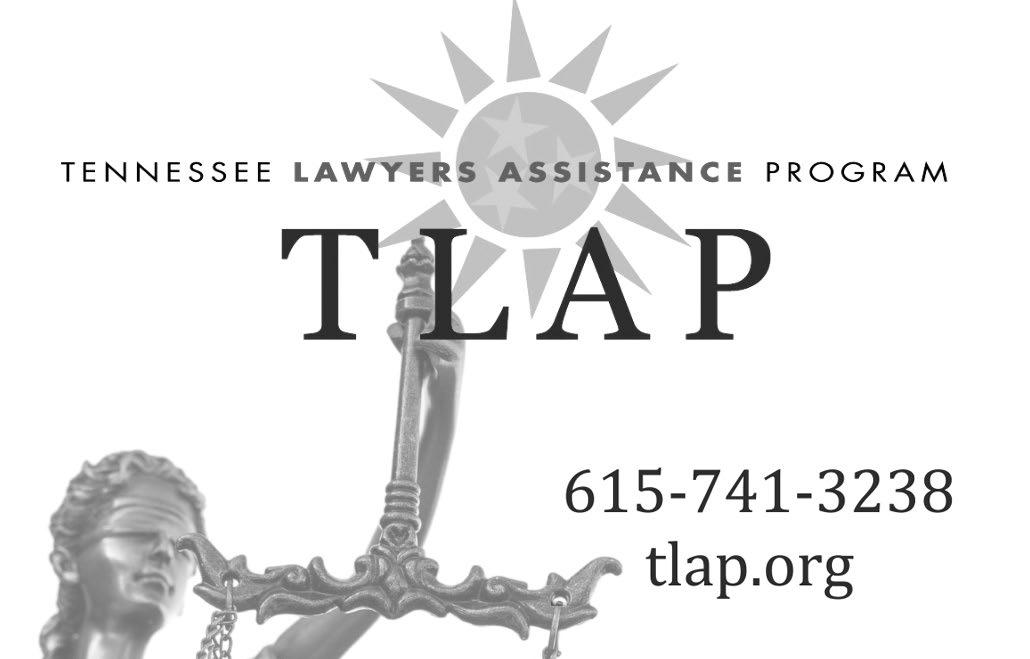

By: Megan Bataille 3L Law Student
Memorial University Duncan School of Law
Former BlueCross BlueShield of Tennessee (BCBS) employee Heather Smith sued the company in the Chancery Court for Hamilton County in December 2021, alleging she was wrongfully terminated. Her complaint alleged retaliatory discharge stemming from a disagreement with BCBS over whether she was entitled to a religious exemption from a company policy mandating COVID-19 vaccinations of all employees. The policy was implemented by BCBS in response to the COVID-19 pandemic.1
Initially, the policy required all “public-facing” employees of BCBS to receive the vaccination. Although Smith’s work did not involve interacting with the public, her superiors at the company stated that she was expected to comply as a leader.2 Smith cited closely held religious beliefs as her reason for an exemption to the policy. In response, BCBS said it was unable to substantiate such a religious exemption and granted Smith an additional 30 days to comply with the vaccine requirement. It called the extension an “accommodation” of her request.3 Instead, Smith applied, and was successfully hired, for a different position at BCBS that was not subject to the vaccine policy. Shortly thereafter, BCBS enacted a new policy that required all employees to be vaccinated, regardless of whether their position was considered public-facing. Smith’s request for religious exemption from the policy was once again denied.4
On November 3, Smith began voicing complaints about her experience with the vaccine policy to members of the Tennessee General Assembly via email. BCBS said Smith’s communication with legislators violated its social media policy and asked her to discontinue communicating with legislators about the policy.5
On November 4, the second iteration of the vaccine policy affecting all employees was implemented. That’s when Smith sent a second email to Tennessee Legislators requesting protection from the vaccine policy. One unidentified legislator forwarded the second email to leadership at BCBS. Smith was terminated the following day.6
Smith sued BCBS for common-law retaliatory discharge, but the case was dismissed for failure to state a claim upon which relief may be granted.7 In its motion for dismissal, BCBS argued that its termination of Smith was proper in accordance with the at-will employment laws of the State. Smith rebutted the argument by asserting that the constitutional right to petition creates a public policy exception to the at-will employment doctrine. 8
The argument was ultimately unsuccessful in the trial court. Smith appealed the decision and was heard in the Court of Appeals at Knoxville, which issued a decision in April 2023. The Appeals Court sided with Smith, overturning the lower court’s dismissal.9
In its decision, the Court of Appeals cited a public policy exception to the at-will employee doctrine, as articulated in Stein v. Davidson Hotel Co., which states that “an at-will employee generally may not be discharged for attempting to exercise a statutory or constitutional right, or for any other reason which violates a clear public policy which is evidenced by an unambiguous constitutional, statutory, or regulatory provision.”10 According to the decision, Smith’s communication with legislators is a constitutionally protected right.11
BCBS appealed the decision, and the Tennessee Supreme Court granted certiorari.
In a March 2025 unanimous decision, the Tennessee Supreme Court struck down the appellate court’s ruling, saying that the Right to Petition under Article 1, Section 23 of the Tennessee Constitution doesn’t offer employment protections from the actions of private entities.12 The opinion, authored by Holly Kirby, C.J., with Jeffery S. Bivens, Roger A. Page, Sarah A. Campbell, and Dwight D. Tarwater, JJ., concurring, is rooted in an interpretation of the at-will employment doctrine that allows for exceedingly limited exceptions to a private employer’s right to termination.13
The opinion emphasized the at-will doctrine’s principles, asserting the rights of private businesses to operate as they see fit without interference from the court. It also pointed to the United States Constitution’s text that its protections are applicable only to state actors, whereas in this case, no state action existed.14
In response to Smith’s argument that constitutional protections should apply in this case under an application of public policy, the Court rejected the similarities Smith purported between the current case and previous rulings. In response to the public policy exception described in Stein, 15 the Court pointed to Chism, 16 which states that the narrow exception that exists for retaliatory discharge claims “cannot be permitted to consume or eliminate the general rule” of employment at will.17
Smith also presented a 1916 decision from McKee v. Hughes18 that emphasized the importance of protecting the fundamental rights of citizens to petition their government without fear of retaliation. However, the court found the comparison insufficient, saying that McKee primarily stood for the proposition that petitioning the government is not an illegal act on its own and that the case failed to address the root of the issue at hand: whether a private company can be held liable for a violation of a constitutional provision. The Court reasoned that because BCBS did not allege that Smith’s communications were illegal, rather that it violated the policy of the company, McKee is not persuasive on the issue.19
Conclusion
Ultimately, the Court found that there was no legal precedent sufficient to uphold Smith’s claim that a private actor may be held liable for a violation of the constitution under the premise of a public policy exception. In its ruling, the Court reversed the decision of the appellate court by upholding the trial court’s initial motion to dismiss, saying unambiguously that at-will employees may not assert claims of retaliatory discharge against private employers based on the right to petition as described in the Tennessee Constitution.
1 Heather Smith v. BlueCross BlueShield of Tennessee, No. E2022-01058-SC-R11-CV, 2025 WL 912870 at *1 (Tenn. Mar. 26, 2025).
2 Id.
3 Id.
4 Id.
5 Id.
continued on page 15
By: Hannah Clyde McKinnish Law Group, PLLC
The Law and Liberty award is an honor that is presented annually to a person, but not necessarily a lawyer, who has fostered and maintained good relationships between the legal profession and the community, promoted and advanced a better understanding of the law and legal process in the non-legal community, demonstrated and encouraged an abiding respect for the rule of law, set an example of good citizenship, stimulated a sense of civic responsibility, or otherwise contributed to the improvement of the legal profession in our community.
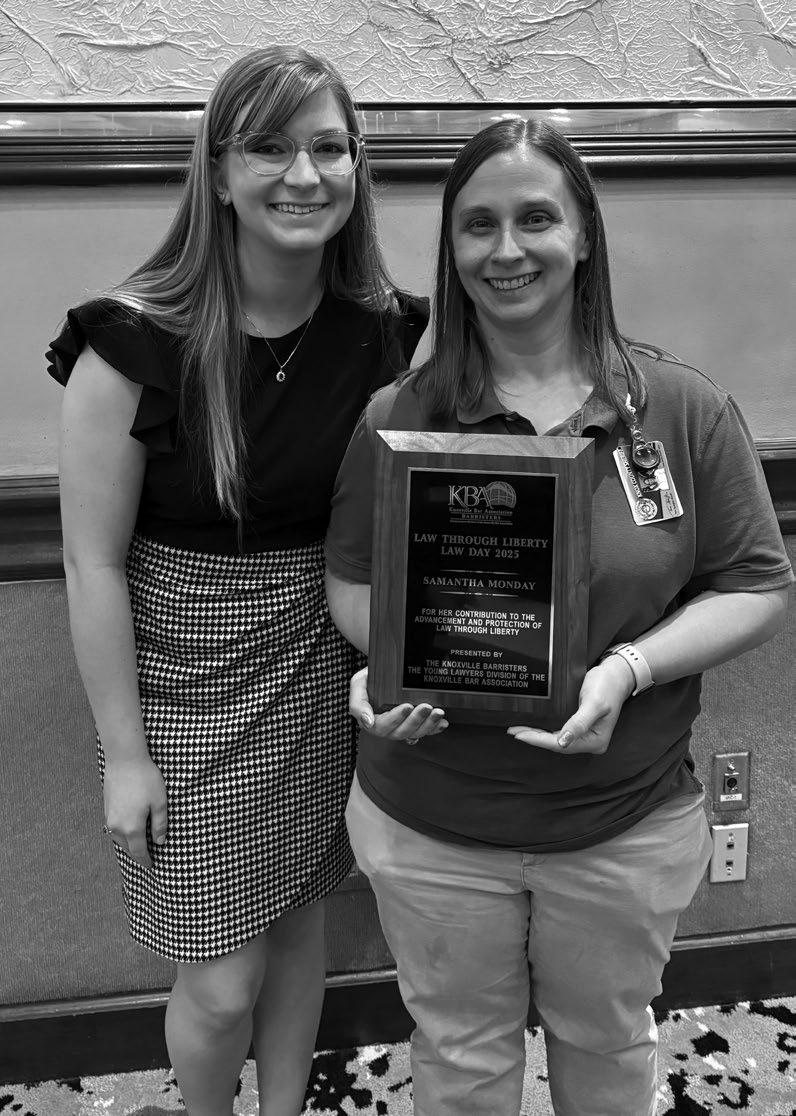
The law and liberty award recognizes and celebrates that the people who make the biggest impact on our community aren’t just those wearing black robes, arguing in court, or even lawyers at all. The recipient of this honor is someone who maintains high standards of professional integrity and ethical conduct and demonstrates respect for personal, political, civil, and religious liberties.
This year’s recipient, Samantha Monday, embodies the very principles that this award celebrates. As a Knox County Sherriff’s Department Case Manager, Ms. Monday works tirelessly to get those who are caught in the cycle of addiction and the criminal justice system the help, compassion, and resources they need. 1 She ensures that all individuals receive the dignity and respect they deserve to experience under the law, regardless of their circumstances. Ms. Monday’s work bridges the gap between the legal system and those in need of support.2
Ms. Monday’s ability to navigate the complexities of addiction recovery while fostering relationships with law enforcement, lawyers, and other key figures in the justice system is admirable. She understands that the road to recovery is rarely a straight path and that we, as the legal community, must show empathy and patience. She advocates for inmates’ recovery, their rights, and their place within a system that is difficult to navigate even without the added complications of addiction.
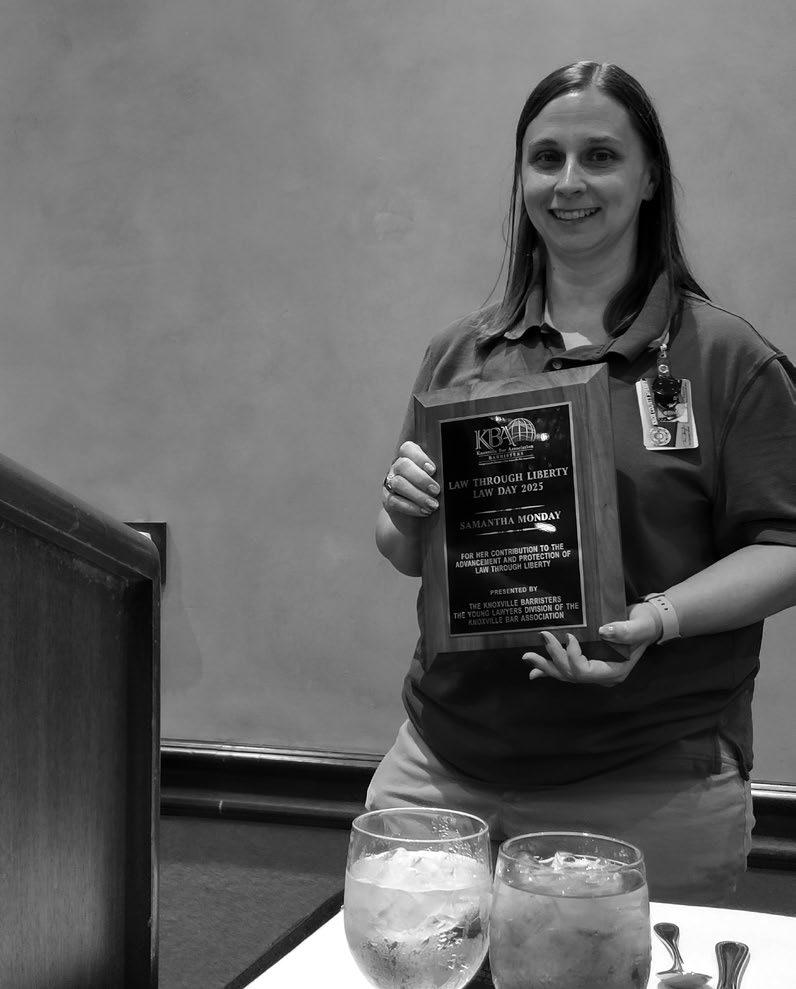

In addition to her advocacy work, Ms. Monday consistently demonstrates professional integrity and respect for individual liberty. Her efforts are grounded in the belief that each person, regardless of their past, is deserving of a fair chance at redemption. Through her work, she has elevated our community’s understanding of the intersection between addiction, the law, and social justice, advancing both awareness and action for meaningful change.
Ms. Monday is so very deserving of this honor, as she continues to show compassion to those who need it most, changing lives, and exemplifying what it means to be a Law and Liberty Award Recipient. Congratulations, Ms. Monday!
1 Bridging the Gap: Addiction case manager knows the road to recovery by heart | WATE 6 On Your Side (https://www.wate.com/news/local-news/bridging-the-gapaddiction-case-manager-knows-the-road-to-recovery-by-heart)
2 Id.
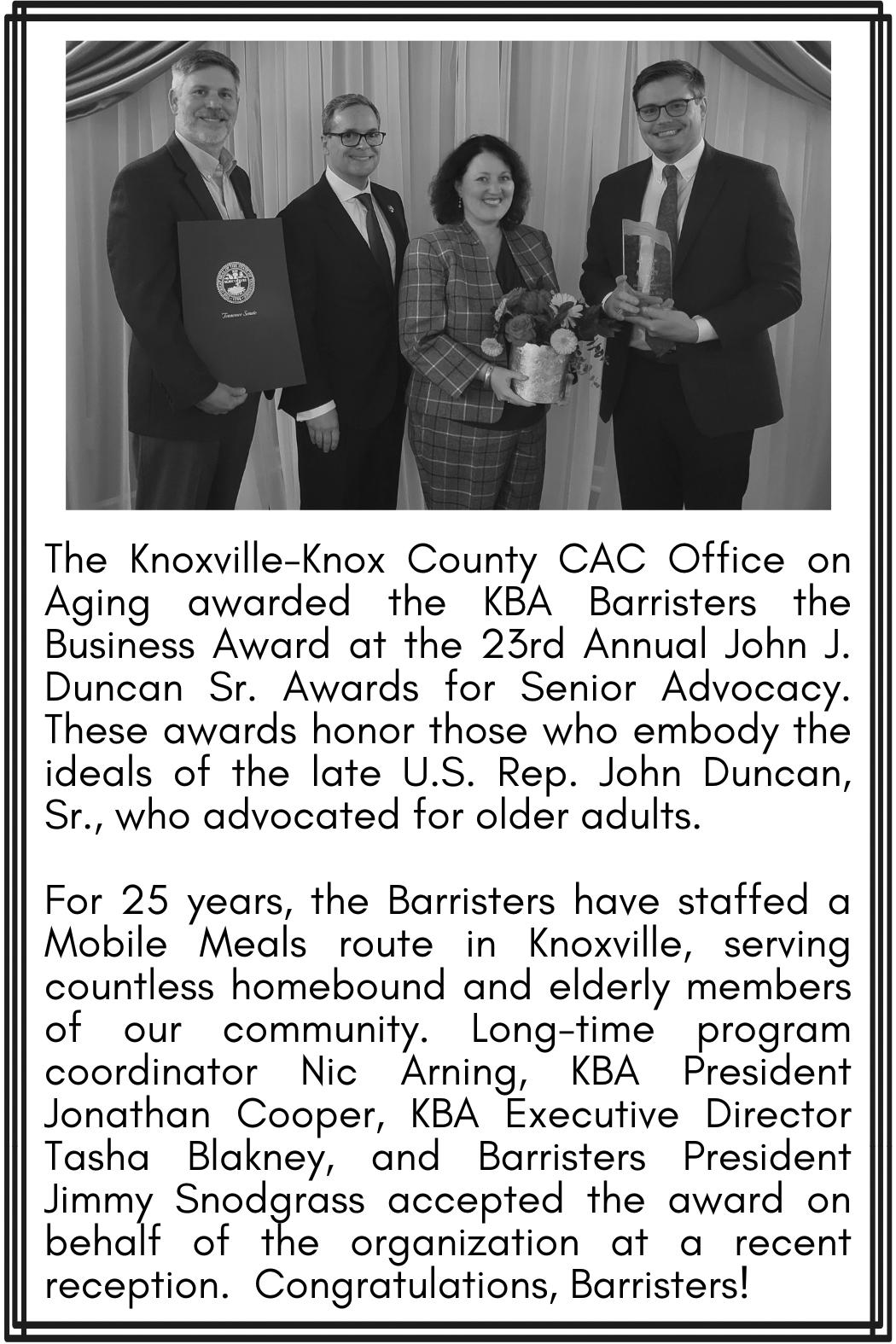

By: Emily Heird, LPC/MHSP Mental Performance Mastery Coach
There is a tendency to focus on time management as the solution for productivity and stress management. But what often goes unnoticed is that time management alone can’t solve a deeper issue that quietly drains productivity and fuels stress: the reluctance to delegate. It’s a pattern I commonly see in my clients. Most lawyers aren’t taught how to lead or manage others. They are trained to execute tasks, perfect their work, outperform others, and bear responsibility like a badge of honor. However, when it’s time to supervise, they often fall into one of two traps: doing everything themselves or delegating poorly and then resenting the outcome.
Why is it so hard to let go? Several beliefs hinder delegation:
• Perfectionism: “No one can do it as well as I can.”
• Speed: “It’s faster if I just do it myself.”
• People-pleasing: “I don’t want to upset anyone or seem bossy.”
• Feedback fear: “I don’t know how to correct without conflict.”
• Control: “What if they mess it up and it reflects on me?”
The cost of these beliefs is significant: mental exhaustion, work overload, time poverty, persistent frustration, chronic stress, and, most importantly, a team that never grows. If you find yourself stuck at your desk at 9 p.m. rewriting someone else’s draft for the third time, you will fully understand that not only is this inefficient, it’s unsustainable.
A study in Harvard Business Review found that only 30% of managers believe they delegate well, even though delegation increases productivity, engagement, and retention. If you can’t offload work, you can’t scale. If you can’t give feedback, your team can’t improve. And if your team can’t operate without you, you don’t have a team, you have a dependency loop.
So, how can you start to delegate better?
Step One: Reframe Delegation.
Forget the titles of supervisor, manager, and leader. You are the coach of a team with the goal of empowering each player to fully execute their role. Bill Belichick’s coaching philosophy is “Do your job.” You may be thinking, “Exactly! “Why can’t they just do their jobs?!” But getting everyone to buy into the culture of fully executing and taking accountability for their role requires you to coach and develop your team. They cannot fully execute if you hoard the work or avoid instructing.
Next, reframe feedback. When a tennis player is serving with poor form, the coach doesn’t stay silent. The coach steps in and gives corrections to improve performance. Withholding that feedback to avoid hurting the player’s feelings would sabotage performance and erode trust. Honesty is a crucial component for trust, which is the foundation of a highperforming team.
Feedback is part of the playbook for success. It is focused on skill development, not on personal attacks. For example, athletes and coaches regularly “review the tape.” They watch footage from games and practice. They look for what went well and examine the factors that led to errors. This is viewed as information for future improvement. Mistakes happen. Coaches see mistakes as opportunities for development, not immediate
proof the player can’t perform. Then they act toward continuous improvement.
When you start viewing delegation and feedback as part of highperformance training, the discomfort around it fades. Employees may have defensiveness around feedback (maybe you do, too). When it is reframed and normalized as part of your investment in their success, it reduces defensiveness. Weaving it into everyday conversation as part of the culture of excellence also reduces the fear employees have around feedback. The message becomes: I believe in your capability.
Step Two: Use the 4-C Framework for Delegation.
1. Clarify the Task
Be specific about what you want. Vagueness creates confusion and they are less likely to hit the target.
Instead of: “Can you draft the agreement?”
Say: “Please draft the agreement with X provisions, modeled after Y. I’ll review it by Friday.”
2. Choose the Right Person
Match the task to the person’s skill level, strengths, and role on the team.
3. Communicate Expectations
Be clear about:
• What success looks like
• When it’s due
• What decisions they can make on their own
4. Check-In, Don’t Micromanage
Set a feedback checkpoint. Don’t hover. Trust the process. Micromanaging is a way for you to manage your anxiety about the outcome. However, micromanaging creates learned helplessness and squashes autonomy. Strategic feedback builds mastery.
Step Three: Practice Giving Feedback Like a Coach.
Many lawyers default to extremes. They avoid it altogether (to keep the peace) or deliver it in a confrontational manner (direct but often damaging).
The ideal approach is coaching feedback, which should be:
• Timely (don’t wait two weeks or until their annual review)
• Specific (“Let’s rework how you presented that clause,” instead of “This is wrong.”)
• Growth-oriented (“Next time, try leading with the key outcome.”)
Additionally, praise is essential. Even if it’s not your natural style or drains your energy, recognizing that the brain thrives on rewardbased learning is crucial for enhancing performance. Let them know what worked well, and express specific appreciation to motivate them to continue performing at a high level.
Step Four: Build Autonomy by Training for It.
The ultimate goal of delegation isn’t just to get work off your plate.
continued on page 15

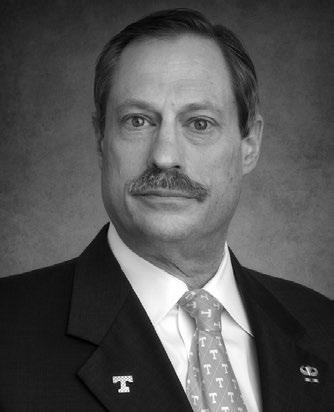
By: Joe Jarret, J.D., Ph.D. University of Tennessee
Introduction:
Oliver Wendell Holmes, Jr.,1 is credited with saying, “Youngster, you will never appreciate the potentialities of the English language until you have heard a Tennessee mule driver search the soul of a mule!” This piece is dedicated to the magnificent mule.
Mules in the Making:
The mule is a domestic equine hybrid between a donkey and a horse. It is the offspring of a male donkey (a jack) and a female horse (a mare).2 According to one breeder, the reason for the donkey’s notorious reputation for stubbornness is because of their much stronger sense of self-preservation than exhibited by horses. Likely based on a stronger prey instinct and a weaker connection with humans, it is considerably more difficult to force or frighten a donkey into doing something it perceives to be dangerous for whatever reason. Once a person has earned their confidence, donkeys can be willing and companionable partners and very dependable in work.3 The Tennessee Code categorizes mules as livestock, and offers various protections against abuse, neglect, cruelty, or being overworked.4
Mules on the Farm:
mules were primarily used for hauling supplies, they did not always operate safely behind the front lines. They often found themselves in the thick of the action. Even after the Army became mechanized in World War II, there were still pockets where pack and saddle animals were necessary to transport supplies, weapons, and ammunition due to mountainous terrain such as in Italy and Sicily. The mule was the pack animal of choice.6
Mules on the Football Field:
For the fourth Army-Navy football game in 1893, the U. S. Naval Academy adopted a live goat as its mascot. In 1899, an officer at the Philadelphia Quartermaster Depot decided that Army needed a mascot of their own for its upcoming game against Navy. An oversized white mule being used to pull an ice wagon was selected to be that mascot. After 1899, mules were frequently present at football games, but it was not until 1936 that the Army adopted the loyal, proven mule as its official mascot.7

Mules were the key element in Tennessee’s farm economy. Between 1870 and 1880, mules replaced oxen as the main work stock in Tennessee. The extension of mule power amounted to a technological revolution in agriculture, allowing farmers to handle more land, get over their fields faster, and achieve higher productivity. Tennessee became an acknowledged center of mule training, and animals trained here were highly regarded for their adaptability and performance. Tennessee farmers took pride in their ability to humanely train mules for field work. Farmers quickly learned that these intelligent creatures responded much better to voice commands than a whip. Mules quickly learned that “gee” meant a right turn, “haw” a left turn, “whoa” to stop, and “come up” to start. Farmers and mules worked together to produce the family subsistence. Perhaps that explains why rural families were so attached to their mules, giving them names and treating them as pets rather than merely beasts of burden.5
Mules on the Battlefield:
Because mules are hardier and surer of foot than horses, they have played an integral role in the U. S. Army’s logistical operations. The Army’s Quartermaster Department has had the responsibility of procuring and training animals for military use since its inception in 1775. Most of the mules procured came from Tennessee. Even though
Memorializing the Mule: Columbia, in Maury County, Tennessee, is home to one of the largest Mule Day celebrations in the world. According to the Maury County Chamber of Commerce, it all started sometime in the 1840s when a livestock show and market brought people into town on the first Monday in April. In the early days, this day was known as “Breeder’s Day.” The early “Breeder’s Day” was a far cry from what Mule Day is now. There were no parades, no pool tournaments, no log loading competitions, and no liars’ contests. All of those things came later. In 1934, Columbia’s Mule Day was born. Presently, over 200,000 individuals flock to Maury County each year in celebration of the mule. Amanda and I attended this purely American celebration several years ago. We were amazed by the diversity of the mules in terms of size and color, and the manner in which their owners doted on them. A quote from an ad in the March 31, 1938, edition of The Paris Post-Intelligencer8 sums up Mule Day nicely. “It is right and just that the lowly mule be thus honored.”
1 Oliver Wendell Holmes Jr. was an American jurist who served as an associate justice of the U.S. Supreme Court from 1902 to 1932.
2 D. Phillip Sponenberg (2016), Mason’s World Encyclopedia of Livestock Breeds and Breeding.
3 National 4-H News, April 1988 issue.
4 Tenn. Code Ann. § 39-14-202, et seq
5 The Tennessee Encyclopedia, “Mules.”
6 Army Times magazine, May, 1979 issue.
7 Id.
8 The Paris Post-Intelligencer is the oldest business in Henry County and is owned and operated by Michael Williams who is the fourth-generation editor and publisher.
A writ of mandamus is a curious thing. It originates in thirteenth century England, giving individuals the right to petition the court (generally the King’s Bench) to order a party who had the authority and obligation to do a particular thing to actually do that thing.1 In other words, it was intended to remedy an abuse of authority—not from an overt act but a failure (or refusal) to act.
Fast forward to twenty-first century Tennessee, and that principle remains true. A writ of mandamus is the proper remedy to require a public official to perform a ministerial act—one “where the proven facts show a clear and specific legal right to be enforced, or a duty which ought to be and can be performed.”2 It is not a proper remedy when “the act to be done involves the exercise of discretion and judgment”3 or there is another remedy available that is “equally convenient, complete, beneficial, and effective as the writ of mandamus . . . .”4
So, what happens when there is a disagreement between a district attorney general and a city about funding for a prosecutor to prosecute violations of state law in a city’s municipal court? This has been the question circulating the 28th Judicial District for the past couple of years.
The 28th Judicial District consists of Crockett, Gibson, and Haywood counties.5 It is 21,402 square miles, with six general sessions courts, four circuit courts, four chancery courts, three juvenile courts, one domestic violence court, and thirteen municipal courts.6 Two of those municipal courts—those in the cities of Milan and Trenton—have a unique feature. They have concurrent criminal jurisdiction with the General Sessions Court of Gibson County.7 Why? If a municipal court had concurrent jurisdiction before May 11, 2003, then they get to keep their concurrent jurisdiction for criminal cases that occur within the city limits.8
That means the District Attorney for the 28th Judicial District must cover 21,402 square miles and nearly a dozen courts with jurisdiction over criminal matters. And that is what the District Attorney’s office did with a staff of 6 assistant district attorneys general and 1 DUI prosecutor (funded by a federal grant)—at least until 2022.9 By then, the Milan municipal court had gone from holding court for two hours every other Saturday to meeting several days a months with the second, fourth, and fifth Wednesdays designated “state days,” in which the prosecutor prosecuted state offenses.10 On the days in which criminal prosecutions occurred, the Milan municipal court kept running past normal business hours.11
At the municipal court for the city of Trenton, things were no better. The clerk of the Court said the docket size had doubled.12 This was, of course, in addition to the caseloads being prosecuted in the general sessions, circuit, and domestic violence courts of the three counties that comprise the 28th Judicial District.
It was a lot. But the District Attorney had a solution—and a statute: Tennessee Code Annotated § 8-7-103(1). “Each district attorney general: shall prosecute in the courts of the district all violations of the state criminal statutes and perform all prosecutorial functions attendant thereto, including prosecuting cases in a municipal court where the municipality provides sufficient personnel to the district attorney general for that purpose. . . .”13
With these italicized words in hand, the District Attorney approached the cites of Milan and Trenton with a proposal—the cities could chip in to pay for another prosecutor, and until they did, his office did not have to provide a prosecutor.14 After all, that arrangement was
By: Melissa B. Carrasco Carrasco Trump, PLLC

already working in the 26th, 29th, and 30th Judicial Districts.15
After months of negotiations, the cities continued to decline to fund a position, so the District Attorney informed them that his office would no longer prosecute cases in the cities’ municipal courts.16 Five days later, the cities filed (you guessed it) a writ of mandamus seeking an order requiring the District Attorney to continue prosecuting cases in the two municipal courts.17 Two months later, they amended their complaint to add a claim for declaratory judgment, declaring that the cities had provided “sufficient personnel” by providing judges, bailiffs, and clerks for the municipal courts.18
What constitutes “sufficient personnel” to trigger a District Attorney’s obligation to prosecute cases in a municipal court? This was a question of first impression.19 You should read the Court of Appeals Opinion because Judge McGee’s analysis is a textbook example of how to apply the principles of statutory interpretation. If I were still teaching my class on statutory interpretation, this would be mandatory reading.
At the end of the day, the trial court concluded, and the Court of Appeals affirmed, that the cities were entitled to a declaratory judgment that they provided “sufficient personnel” by providing municipal judges, court clerks, and bailiffs. These positions enable the operations of the municipal court, and thus the District Attorney’s office was required to prosecute cases.20 But, the real question was whether the writ of mandamus was the proper remedy, and the declaratory judgment is what stopped the writ in its tracks. Remember, a writ of mandamus is not proper if there is another remedy “that is equally convenient, complete, beneficiary, and effective,” and the fact that the cities were eligible for a declaratory judgment meant there was another such remedy.
So, the cities left the Court of Appeals with the satisfaction of knowing that they had provided “sufficient personnel” to trigger the District Attorney’s obligation to prosecute criminal cases in their municipal courts—and they did not have to fund another prosecutor— but they left without a writ ordering him to do so.
To be fair, the writ probably wasn’t necessary. Despite what must have been a rather tense situation that went on for years, the prosecutors from the District Attorney’s office didn’t miss a day in court. They continued to prosecute criminal cases in the municipal courts and the rest of the courts of the 28th Judicial District throughout the disagreement, the subsequent litigation, and the appeal. Because an oath supersedes a writ.
1 See Audrey Davis, A Return to the Traditional Use of the Writ of Mandamus, 1528, 1529-30, Vol. 24.2, Lewis & CLARk L. Rev (2020).
2 State ex rel. Metro Gov’t v. State, 534 S.W.3d 928, 931 (Tenn. Ct. App. 2017).
3 Id. at 931.
4 Milan v. Frederick H. Agee, No. W2024-00200-COA-R3-CV, slip op. at 22 (Tenn. Ct. App. May 2, 2025).
5 Tennessee Courts, Judicial Districts Map, https://www.tncourts.gov/jdmap, last visited May 4, 2025.
6 See Tennessee Courts, Crockett + Gibson + Haywood County, https://www. tncourts.gov/jd/17+81+92, last visited May 4, 2025; Haywood County, Tennessee, District Attorney, Frederick H. Agee, https://haywoodtn.gov/government/districtattorney/, last visited May 4, 2025; UT Extension Inst. of Agriculture, Crockett County, https://crockett.tennessee.edu/, last visited May 4, 2025, Goodspeed’s History of Tennessee, Gibson County History, last visited May 4, 2025; Haywood County, Tennessee, About Haywood County, https://haywoodtn.gov/about-haywoodcounty/, last visited May 4, 2025; see also Milan v. Frederick H. Agee, No. W202400200-COA-R3-CV, slip op. at 2 (Tenn. Ct. App. May 2, 2025).
7 Milan, slip op. at p. 2, n.1.
8 Tennessee Code Annotated § 16-18-302(c).
continued on page 15

By: Bridget J. Pyman Arnett | Baker
This month’s Hello My Name Is column features attorney Louis Moran, an Associate Attorney with Lewis Thomason, P.C., where his practice focuses on litigation with an emphasis on business, health care, and transportation law. A 2024 graduate of the University of Tennessee College of Law, Louis also holds a degree in Neuroscience with a minor in Psychology from the University of Tennessee. He is a member of the Tennessee Bar Association, the Knoxville Bar Association, and the Federalist Society.
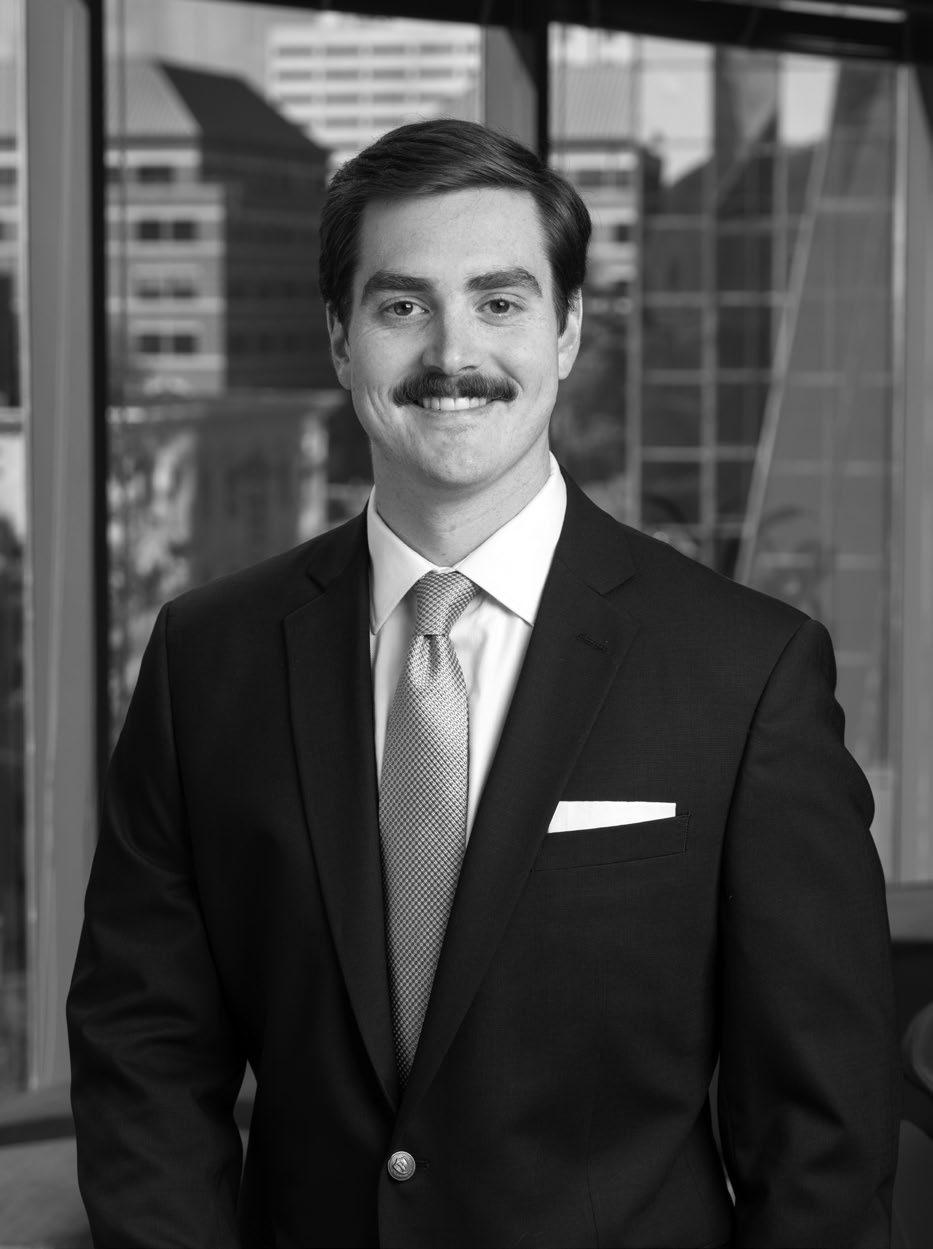
It’s clear from his responses that Louis’s path into the legal profession has been shaped by a strong interest in structure, communication, and problem-solving. His time working as a bartender while balancing law school gave him practical insight into how people communicate and make decisions – skills that continue to serve him in practice. Combined with a growing appreciation for the strategy behind legal writing, Louis brings a thoughtful and intentional approach to both his professional work and everyday life.
If you hosted your own talk show, who would be your first guest?
If I could host my own talk show, I’d like to think it wouldn’t be the typical late-night type. Imagine this: we’re on a weathered front porch, there’s a couple of rocking chairs, some nice strong coffee getting brewed, and maybe even an old dog wandering about. I’d want it to feel more like a long conversation with an old friend than a formal interview. The show would probably center around country music. I’d love to talk to some of my favorite artists about the stories behind certain songs and the influences that shaped them. For the first guest? I’d have to go with Charles Wesley Godwin. He’s an unbelievable storyteller and has an incredible ability to paint a vivid picture through song in just a couple minutes. Plus, if you’ve seen the walls of my office or joined me on a zoom call, you probably already knew he was at the top of my list.
What is one statement about yourself that you would say now but you could not say 10 years ago?
Ten years ago, I couldn’t imagine ever saying “I’m an attorney.” I hadn’t graduated high school, been to college, passed the bar, or really done anything to make that statement remotely true. Even the idea of it seemed foreign. To younger me, being an attorney consisted of one thing: writing.
Growing up, I always loved reading but absolutely loathed writing.
I could sit down with a good novel and read the entire thing in one sitting, no problem. But it’d take an act of Congress to get me to write an essay in high school. I’d sit at the kitchen table and stare at a blank word document for hours trying to explain the symbolism of the green light in The Great Gatsby as if I had something profound to say about the American Dream. And if the assignment required personal reflection? Forget it. Not happening.
Then somewhere along the way, this all shifted. Through college and later in law school, I found that legal writing made sense to me in a way that academic essays never quite did. There was something about its structure and purpose-driven nature that fit how my mind works. It’s writing to inform, to persuade, and to advocate. In short, to write well in a legal capacity, you have to say what you mean, support it well, and anticipate what the other side might throw your way.
Ten years ago, I couldn’t have said “I’m an attorney.” Looking back, I’d love to have been able to tell younger me to stick with it, because one day you’ll get to write memos, motions, and arguments for a living. He’d be surprised, perhaps a bit confused, but proud all the same.
On a typical Saturday afternoon, where are you and what are you doing?
It depends on the season. If it’s spring, odds are you’ll find me on a golf course trying to convince myself that today is the day I finally figure out why my drives end up 30 yards offline to the right, or at least make peace with it.
In the summer, I’m usually near water—whether on a lake, by a pool, or even just a puddle with some shade. Bonus points if there’s SEC baseball on and I’m in a lawn chair debating absolutely nothing of consequence.
Come fall, you’ll find me in Neyland, hopefully watching Tennessee stomp Florida or Alabama. Beggars can’t be choosers, but hope springs eternal – or something like that. There’s nothing quite like a cool fall afternoon in Knoxville, the crowd in a checkerboard, and the sound of Sterl the Pearl hollering into the mic like he gets paid by the decibel.
Winter’s the slowest. I’ll usually end up on the couch, maybe make a pot of chili, and watch whatever bowl game is on.
Did you have any significant or interesting work experiences before you became a lawyer that impacted your career?
I worked at a craft beer bar for a couple of years while I was in law school. I’d spend my nights alternating between trying to get caught up on my Admin Law reading and pouring saisons for patrons who described them as “crisp, but emotional.” It was a time of great character development.
That job taught me more about people than any law school class could’ve. I had tons of conversations with complete strangers about all facets of life, work, relationships, and everything in-between. You quickly learn diplomacy when someone’s three, crisp-but-emotional, beers deep and wants to discuss the meaning of life or complain about local politics. It helped me develop a much better understanding of how different people think, what motivates them, and how to communicate more effectively with these different personalities.
continued from page 6
We arrived in the small mountain town of Manchester, and Heidi giggled at my reaction when she pulled into the parking lot of a local car dealership. Turns out the courthouse was being renovated, and the dealership had been converted into a makeshift, temporary courthouse. I was taken aback, but Heidi, as always, was able to roll with the punches and improvise when life required it. I can’t remember whether or not we won the motion hearing that day, but there was no doubt, as many of you are aware from experience, that Heidi was prepared, articulate, and zealous in representing her client.
My first day of practicing law with Heidi Barcus was unique and unanticipated, but it taught me a lot about the woman with whom I have spent the last twenty-two years practicing. The skills she demonstrated that day are the skills she carries into the TBA presidency. She is a thinker, doer, innovator, mentor, collaborator, and leader. She is empathetic and relates to people where they are. She strives for excellence in herself and pushes others to excel as well.
Our state association is in good hands with Heidi at the helm. I asked her recently what she intends to do in her presidential year (this is a loaded question as the TBA presidency always comes with unexpected crises and opportunities which will largely dictate the president’s focus). Heidi told me she wanted to focus on engagement, at all levels. From bar applicants to young lawyers to those approaching retirement and beyond, from litigators to transactional attorneys to in-house counsel, and from Big Law to small firms to solo practitioners, Heidi intends to make all Tennessee lawyers know they are welcome, they have a home and community in the bar, and the TBA can offer them support. I cannot think of a better ambassador to accomplish just that. The Knoxville Bar should be proud. Although she will be leading attorneys across the state next year, we will always be able to claim Heidi as one of our own.
It’s to build a team that thrives without your constant oversight. This allows you to focus on the high-level work only you can do. Ultimately, this is how you increase productivity and profits while simultaneously reducing your stress. Research from Gallup shows that leaders who delegate effectively see up to 33% more revenue growth than those who don’t.
Yes, building a high-performing team requires time, effort, and work from you on the front end. It requires patience with the team’s development and understanding (with accountability) when mistakes are made. It requires you to explain and train or provide training if you’re not familiar with the ins-and-outs of their role. It requires letting go of control, managing your perfectionism, and allowing others to do things their way (if the technical portion is correct). But the up-front investment pays dividends in many areas for sustained success.

6 Id. at *2.
7 Id. at *1.
8 Id.
9 Id.
10 Id. at *3.
continued from page 8
11 Stein v. Davidson Hotel, Co., 954 S.W.2d 717 (Tenn. 1997).
12 Smith 2025 WL 812870 at * 14.
13 Id. at *4.
14 Id. at *8.
15 Stein, 954 S.W.2d at 717.
16 Chism v. Midsouth Milling Co., 762 S.W.2d 556 (Tenn. 1988).
17 Id.
18 McKee v. Hughes, 133 Tenn. 455, 181 S.W. 930 (1916).
19 Smith 2025 WL 812870 at * 11.
9 Milan, slip op. at 4.
10 See id.
11 Id.
12 Id.
continued from page 13
13 Tenn. Code Ann. § 8-7-103(1) (emphasis added).
14 Milan, slip op. at 2-3.
15 Id., slip op. at 8-9.
16 Id. slip op. at 3.
17 Id., slip op. at 3, 19.
18 Id., slip op. at 3-4, 9, 10.
19 Id., slip op. at 11.
20 Id., slip op. at 12, 20.

Ten weeks. Ten weeks to study twelve law school subjects. Ten weeks of blood, sweat, and tears that culminate in a two-day exam that determines the rest of your life (or at least this career thing).
The bar exam. I’m sure those words inspire a sense of anxiety that we remember all too well.1 I took the exam almost eight years ago and yet I can still recall the “I should have studied harder…” gut check on the first day. Now, as a bar skills professor, I have a front row seat for graduates preparing for the exam, and, I assure you, that anxiety never goes away.
As licensed attorneys, we are accustomed to tradition. It is the foundation of our profession, after all! Tradition requires a comprehensive exam that ensures that we are all competent and can zealously represent clients; it is a necessary obstacle. So, we must all tackle the bar exam.
Those who took the Tennessee exam prior to 2019 likely recall studying Tennessee law for the written portion of the exam and an amalgamation of law for the 200-multiple choice question portion. Tennessee first administered the six-hour multiple-choice section in 1972 as a way of expediting the licensing process due to an influx of law school graduates.2
This model was administered for over four decades until the Tennessee Supreme Court voted to adopt the Uniform Bar Exam (“UBE”) beginning with the February 2019 testing administration.3 The UBE is drafted and coordinated by the National Conference of Bar Examiners (“NCBE”), but written essay questions continue to be graded by Tennessee attorneys.4 This model allows testing questions to be drafted using the large scale resources of the NCBE, but continues the tradition of state-specific oversight to meet certain thresholds.5 Adoption of the UBE in forty other jurisdictions, including the District of Columbia and several territories, offers Tennessee attorneys much needed mobility and the opportunity to practice in other states and territories.6 For six years, the UBE has been on the forefront of examinee’s minds, guiding law school professors, bar preparation companies, and soonto-be employers. But even tradition requires evolution, so allow me to introduce the NextGen bar exam.
nine jurisdictions have adopted the NextGen exam to be administered between 2026 and 2028.9
Notably, the exam will be administered in one and a half days!10 (Cue the groans for being unlucky to be subjected to an extra half day.) Before you become too jealous, the exam differs from earlier bar exam formats in several other not-so-fun ways. While the NCBE has provided some initial details, much about the NextGen Bar Exam remains uncertain.

We do know that the NextGen exam is fundamentally changing tested content. Graduates will no longer be expected to study trusts & estates, conflicts of law, secured transactions, or family law.11 From the remaining traditional topics, the NCBE distinguishes areas of law that need to be memorized (starred) and areas with which an examinee need only to be familiar (unstarred). These content scope outlines are available on the NCBE website.12
In addition to content changes, the exam aims to cover a variety of “foundational lawyering skills.” The foundational skills include those that are currently covered by the UBE exam, such as issue spotting and analysis and legal writing, but takers are now expected to execute skills such as legal research, investigation and evaluation, client counseling and advising, negotiation and dispute resolution, and client relationship and management on the exam. These new skills will be tested in a variety of ways.
The current UBE requires test-takers to answer the traditional multiple-choice question by choosing the best answer out of four choices. The NextGen exam will continue to use this format, but examinees will also be expected to answer multiple-choice questions that include six answer choices.13 Graduates must pick the best two-of-six answer choices.14 Additionally, unlike the UBE, the new multiple-choice questions may cover several tested topics in one question.
The NextGen bar exam is the most recent NCBE creation, and it aims to better prepare lawyers for today’s legal landscape. The Nextgen exam will debut in July 2026 in nine jurisdictions.7 Tennessee will first administer the NextGen exam beginning in July 2027.8 So far, thirty-
The UBE currently consists of two Multistate Performance Tests (“MPT”). Takers are given 90 minutes to decipher source documents from a “File” and a “Library” and draft a corresponding legal document.15 The NextGen Performance Test (“PT”) will only allow takers 60 minutes to read and analyze file sources and draft a writing product. The new PT may also include multiple-choice questions and short answer responses.16 The PT may cover subjects not included in the NCBE’s content scope by providing written sources in these topics.17 This requires takers to be vaguely familiar with non-tested topic sources.
Finally, the NextGen exam introduces a new type of question that
By: Kayla M. Swiney Lincoln Memorial University Duncan School of Law

breaks from tradition: the integrated question set. The test-taker will be given a common factual scenario and asked to answer several multiplechoice and short answer questions.18 As the questions progress, takers should expect additional facts or legal documents to be introduced.19 An integrated question set may also ask the taker to draft or edit a preexisting legal document.20 This is an entirely new testing method for the bar exam.
For those working in legal academia, the NextGen exam is old news! We have been discussing, discerning, and planning for almost two years, but even we are a bit worried about what this means for 2027 graduates. In October 2024, the NCBE hosted a national NextGen prototype exam in thirty-two jurisdictions (including a location in Knoxville).21 No results have been announced from the prototype test, but we should expect news to be forthcoming. While we wait, I will begin bar preparation with my students--a journey that I know all too well.
1 Despite the very specific word choice, I am not a Swiftie.
2 The Bar Examiner, Celebrating 50 Years of the MBE: A Brief History of the Landmark Examination, https://thebarexaminer.ncbex.org/article/fall-2022/celebrating-50years-mbe/.
3 Tennessee CourTs, https://tncourts.gov/news/2018/04/18/tennessee-adopts-uniformbar-exam (last visited May 8, 2025).
4 Id.
5 Id
6 naTional ConferenCe of Bar examiners, https://www.ncbex.org/exams/ube/ list-ube-jurisdictions#:~:text=UBE%20Jurisdictions%20and%20First%20 Administration%20Dates%20*,(July%202013)%20*%20Virgin%20Islands%20 (July%202017) (last visited May 8, 2025).
7 naTional ConferenCe of Bar examiners, https://www.ncbex.org/exams/nextgen (last visited May 8, 2025).
8 Tennessee CourTs, https://www.tncourts.gov/press/2024/04/22/tennessee-supremecourt-adopts-updated-bar-examination (last visited May 8, 2025).
9 naTional ConferenCe of Bar examiners, https://www.ncbex.org/exams/nextgen (last visited May 8, 2025).
10 Id.
11 Id. Note that family law will be tested in 2028.
12 naTional ConferenCe of Bar examiners, https://www.ncbex.org/exams/nextgen/contentscope (last visited May 8, 2025).
13 naTional ConferenCe of Bar examiners, https://www.ncbex.org/exams/nextgen/samplequestions (last visited on May 8, 2025).
14 Id.
15 naTional ConferenCe of Bar examiners, https://www.ncbex.org/exams/mpt (last visited on May 8, 2025).
16 naTional ConferenCe of Bar examiners, https://www.ncbex.org/exams/nextgen/samplequestions (last visited on May 8, 2025).
17 Id.
18 Id.
19 Id.
20 Id.
21 naTional ConferenCe of Bar examiners, https://nextgenbarexam.ncbex.org/nextgenprototype-exam-october-2024/ (last visited on May 8, 2025).

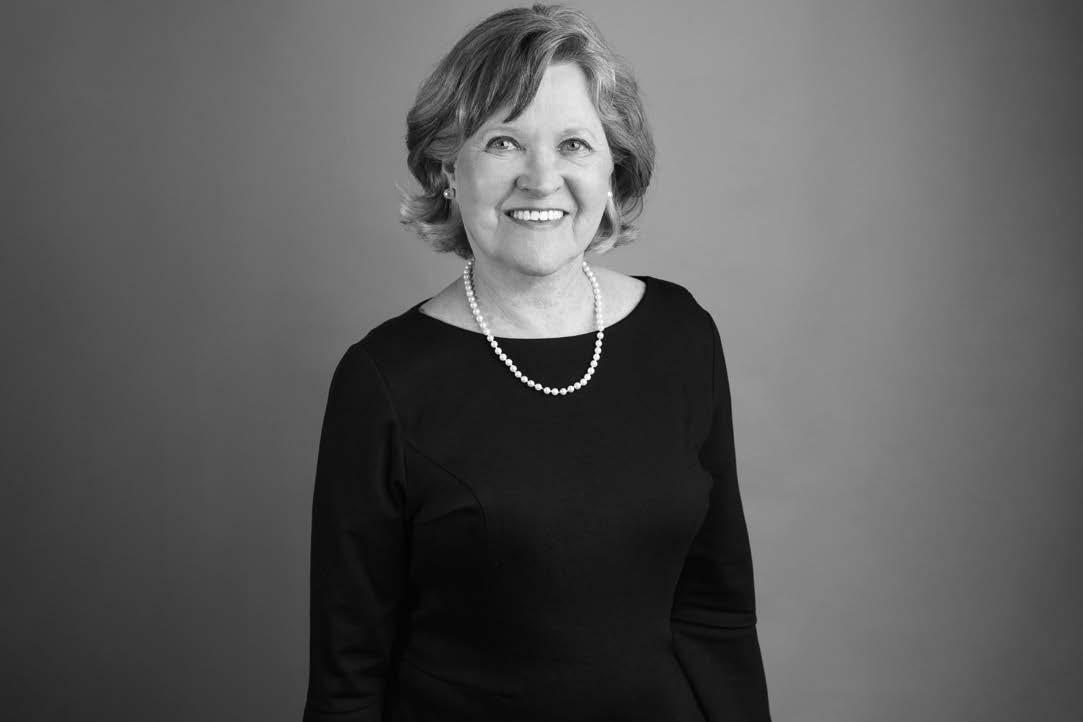
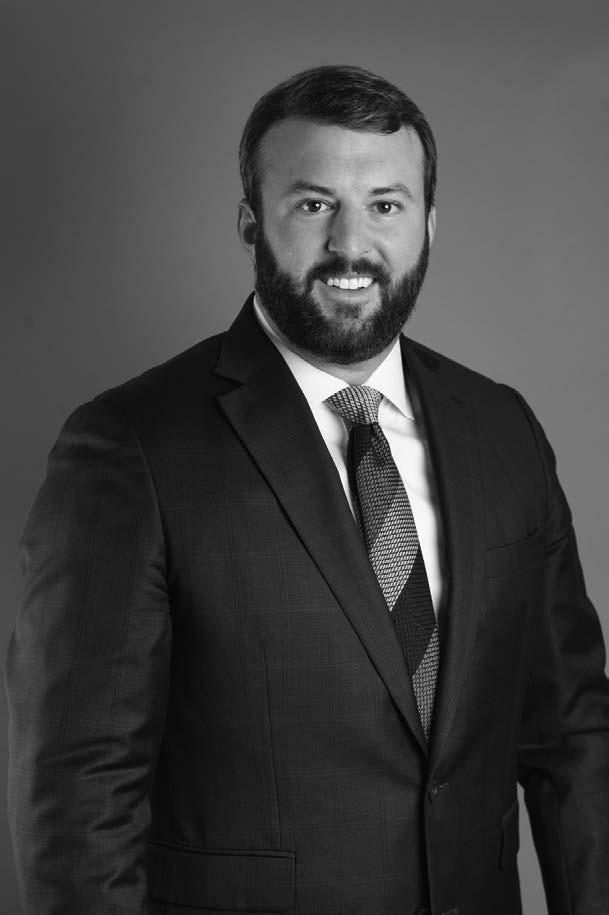
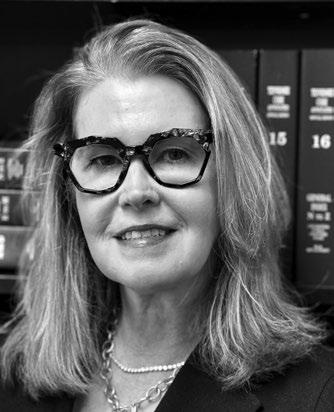
By: Amye Tankersley King Senior Law Clerk
Tennessee Court of Appeals
In my twenty-something years as an appellate court law clerk, I have read a lot of briefs. Thousands of them, to be sure. I have some observations about what makes an appellate brief engaging and its arguments compelling.
Don’t bury the lede. When choosing and framing your appellate issues, many of us were told in law school to lead with the strongest argument. To this, I say, “Maybe.” We often think of a strong issue, and therefore, a strong argument, as the one addressing what we think the trial court got so, so wrong. Many times, the better way to determine the strongest argument is to look at the result you will achieve for your client, should you prevail. Maybe you’re hot under the collar because the trial court admitted obvious hearsay evidence for which there was no applicable exception. What’s the best possible result? A new trial. But what if the court lacked subject matter jurisdiction over the case? What’s the best possible result? A dismissal! Taking the focus off what you think the trial court got the most wrong and putting it on the optimal result for the client will often help you identify your strongest argument. Of course, you always need to evaluate the relative prospects for success on each issue in determining the order in which you present them.
Have some standards. I’m surprised by how often an attorney doesn’t acknowledge the appellate standard of review or recites an incorrect standard of review. If the appellate court is conducting a review for abuse of discretion, don’t argue that the court should conduct a de novo review. T.R.A.P. 27(a)(7)(B) and F.R.A.P. 28(a)(8)(B) require your brief to state the standard of review for each issue. Frame your issues in terms of the applicable standard and explain why your client is entitled to relief (or the opposing party isn’t) under the standard.
Don’t retry your case. Know that, when you come to an appellate court, you are not getting a trial or hearing de novo on factual issues. The trier of fact, whether judge or jury, determines factual questions. Unless the evidence fails to support the determinations of the trier of fact, the appellate court is not going to revisit factual issues. This entails more than a mere disagreement with which witness told the truth. Don’t argue that the appellate court should accredit your client’s testimony, even though the jury didn’t, unless nothing in the record supports the conclusion the jury reached.
Don’t play fast and loose with the facts. The court has the record, which it will review. Misstating the facts in your brief is never a good idea. You will probably be in the same court again in your career, and you don’t want the reputation as the lawyer whose facts can’t be trusted. Similarly, don’t omit unfavorable facts from your brief. Again, the court has the record. The facts are what they are. Acknowledge them and explain why you’re entitled to relief as a matter of law.
Know your remedy. Do you know what the remedy is for the error you’ve alleged? Lawyers sometimes are overly focused on the error, only to ask for the wrong result. I have seen lawyers argue that the evidence is insufficient to support their client’s criminal conviction but then ask the
court for a new trial, rather than a reversal of the conviction and dismissal of the charge. Make sure you ask the court for the appropriate relief. Make your point, once. Making your point five times, or phrasing one allegation of error five ways, is not more effective than doing it well once. Don’t let your point get lost in a sea of words.
Address new issues raised by the other party. Particularly if you are the appellant, read the appellee’s brief and address any new issues raised. Many times, an appellant does not file a reply brief to respond to an appellee’s argument that a criminal appeal should be dismissed because the notice of appeal was untimely or that one of the appellant’s issues was waived because it was not raised in the trial court. This is a lost opportunity to address potential pitfalls.
Next time you’re writing an appellate brief, I hope you’ll consider these guidelines. We have a shared interest in making your briefs the best they can be.
By: Alex B. Long Williford Gragg Distinguished Professor of Law University of Tennessee College of Law

In March, the Tennessee Board of Professional Responsibility published Formal Opinion 2025-F-171. The opinion discusses the propriety of proposing or accepting a provision in a settlement agreement “that requires the attorney to become a party bound by a non-disparagement clause that prohibits the lawyer from future use of information learned during the case, which may shed a negative light on the defendants.” The opinion notes that there are two potentially relevant rules of professional conduct implicated by the inclusion of such a clause.
The first is TRPC Rule 1.7, the rule regarding conflicts of interest. As an earlier Tennessee ethics opinion observed, ““the attorney’s signature on a release should vouch only for the fact that the client releases the defendant. A requirement that a plaintiff’s attorney become a party to a release might cause a conflict of interest between the plaintiff’s attorney and the plaintiff in violation of [Rule 1.7].”1 Thus, the inclusion of such a clause is generally prohibited.
The more obvious rule implicated by the inclusion of a nondisparagement clause that applies to a lawyer is Rule 5.6, which prohibits a lawyer from offering or making an agreement that restricts the lawyer’s right to practice as part of the settlement of a client controversy. A 1993 ABA ethics opinion explains the underlying rationales for this prohibition:
First, permitting such agreements restricts the access of the public to lawyers who, by virtue of their background and experience, might be the very best available talent to represent these individuals. Second, the use of such agreements may provide clients with rewards that bear less relationship to the merits of their claims than they do to the desire of the defendant to “buy off ” plaintiff’s counsel. Third, the offering of such restrictive agreements places the plaintiff’s lawyer in a situation where there is conflict between the interests of present clients and those of potential future clients. While the Model Rules generally require that the client’s interests be put first, forcing a lawyer to give up future representations may be asking too much, particularly in light of the strong countervailing policy favoring the public’s unfettered choice of counsel.2
Citing these justifications for the rule, the BPR opinion concluded that the inclusion of a provision in a settlement agreement that prohibits a lawyer from future use of information learned during the case that may shed a negative light on the defendants violates Rule 5.6(b). The opinion notes that the inclusion of such a non-disparagement clause indirectly restricts the plaintiffs’ counsel “from informing potential clients of their experience and expertise, making it difficult for future clients to identify well-qualified counsel.” In addition, the opinion notes, the inclusion of such a clause in a products liability action would potentially deny the
public relevant information concerning potentially dangerous products.
This is not the first time that the ABA and the BPR have addressed Rule 5.6’s application to settlement agreements:
• ABA Formal Opinion 93-371: “[A] lawyer may not offer, nor may opposing counsel accept, a settlement term that would obligate the latter to refrain from representing either present or future clients who might opt out of a settlement of mass tort or class action litigation.”
• Tennessee Formal Ethics Opinion 98-F-141: Clauses restricting plaintiff or plaintiff’s counsel from using case information to assist other litigants or claimants violate Rule 5.6(b).
• ABA Formal Opinion 00-417: “Although a lawyer may participate in a settlement agreement that prohibits [the lawyer] from revealing information relating to the representation of [the] client, the lawyer may not participate or comply with a settlement agreement that would prevent [the lawyer] from using information gained during the representation in later representations against the opposing party, or a related party, except in limited circumstances.”
• Tennessee Formal Ethics Opinion 2016-F-161: “[A] lawyer may not propose or agree to a settlement agreement that requires a lawyer to turn over any work product materials as part of the settlement if that action will restrict [the lawyer’s] representation of other clients.
• Tennessee Formal Ethics Opinion 2019-F-167: “It is improper for an attorney to propose or accept a provision in a settlement agreement, in a products liability case, that requires destruction of the subject vehicle alleged to be defective if that action will restrict the attorney’s representation of other clients.”
Formal Opinion 2025-F-171 serves as yet another reminder of the need for attorneys to be mindful of Rule 5.6(b) when entering into settlement agreements. While the rule clearly applies to settlement agreements prohibiting a lawyer from, for example, agreeing never to sue a particular defendant, it has application beyond such scenarios. Lawyers should be cautious about proposing or agreeing to any clause in a settlement agreement that even indirectly limits a lawyer’s ability to effectively represent a current or future client or that otherwise might put the interests of the lawyer and a client in conflict.
1 Tennessee Formal Ethics Opinion 98-F-141 (Feb. 4, 1998).
2 ABA Formal Opinion 93-171.
Plan now to attend the Barristers monthly meeting on Wednesday, June 11, starting at 5:15 pm at the outdoor patio at The Firefly at the Hilton, located at 501 W. Church Avenue, Knoxville. Social time starts at 5:00 pm. All Barristers members are invited to attend, meet fellow attorneys, and learn about upcoming Barristers events.
The Veterans’ Legal Advice Clinic is a joint project of the KBA/ Barristers Access to Justice Committees, Legal Aid of East Tennessee, the Knox Co. Public Defender’s Community Law Office, the UT College of Law, LMU- Duncan School of Law, and the local Veterans Affairs office. This is a general advice and referral clinic which requires attorney volunteers for its continued operation. The next Veterans Legal Clinic will be held in person at the Knoxville Community Law Office on June 11. Sign up at https://www.knoxbar.org/?pg=Upcoming-Legal-Clinics.
The Volunteer Breakfast Committee is excited to announce two new ways to make a tangible impact in our community. Thanks to the generosity of Knoxville Bar Association members, they’ve been able to provide a warm meal to those in need through our long-standing partnership with the Volunteer Ministry Center. Now, they’re expanding our efforts by offering two additional sponsorship opportunities at the same $150 cost.

CareCuts is a volunteer-run nonprofit that provides haircuts, hospitality, and essential supplies to individuals experiencing homelessness, helping them move forward with dignity. In addition to volunteer opportunities, the organization is currently in need of donated items, including powdered Gatorade, paper towels, ramen noodles, and protein bars.
Grow Free Tennessee, part of the Community Coalition Against Human Trafficking, provides critical support to trafficking survivors on their path to healing and restoration. Through the Family Table program, volunteers prepare and deliver a meal for, typically, 4-6 individuals staying in the organization’s safe house.
For both of these programs, the Volunteer Breakfast Committee can assist with logistics via sponsorship, whether that means shopping for and delivering essential items to CareCuts or shopping and preparing meals for the Family Table program. If your firm or organization is interested in sponsoring or learning more about these opportunities, please reach out to co-chairs Miranda Goodwin (mirandaegoodwin@gmail.com) and Bridget Pyman (bpyman@arnettbaker.com).

By: Jimmy Snodgrass Kramer Rayson LLP

While I don’t think Kramer Rayson would support this, I would love an intern to help pick up my dry cleaning, walk the dog (particularly on days when it is raining outside), or maybe finally hang my diplomas up in my office. When Steve Jobs was 12 years old, he called the co-founder of Hewlett-Packard, miraculously got through (after finding the number in the phone book), and asked for some parts to complete a school project. Bill Hewlett sent him the parts but also offered him an internship with the company that following summer. Conan O’Brien was an intern for Congressmen Robert Drinan and Barney Frank, and I’m sure gave the most entertaining tours of the Capitol Building. Everyone thinks of the classic story of an intern making coffee runs or scanning a countless number of documents. However, with respect to an unpaid intern, it is important to consider whether they are actually getting an educational benefit from this program.
The Department of Labor Wage and Hour Division has published Fact Sheet # 71, which details how to determine whether interns working for “for profit” employers are covered by the Fair Labor Standards Act (FLSA) and thus are entitled to minimum wages and overtime. There is no specific definition of an “intern” under the FLSA; therefore, in order to avoid minimum wage requirements, the “intern” must fit under applicable definitions of a “volunteer” or a “trainee.”
In short, courts determine which party is the “primary beneficiary” of the relationship to determine whether an intern should be defined as an employee under the FLSA. The DOL identified seven factors that courts regularly consider:
1. The extent to which the intern and the employer clearly understand that there is no expectation of compensation (any promise of compensation, express or implied, suggests that the intern is an employee— and vice versa);
2. The extent to which the internship provides training that would be similar to that which would be given in an educational environment, including the clinical and other hands-on training provided by educational institutions;
3. The extent to which the internship is tied to the intern’s formal education program by integrated coursework or the receipt of academic credit;
4. The extent to which the internship accommodates the intern’s academic commitments by corresponding to the academic calendar;
5. The extent to which the internship’s duration
is limited to the period in which the internship provides the intern with beneficial learning;
6. The extent to which the intern’s work complements, rather than displaces, the work of paid employees while providing significant educational benefits to the intern; and
7. The extent to which the intern and the employer understand that the internship is conducted without entitlement to a paid job at the conclusion of the internship.
The Sixth Circuit has held that this test is applicable and has detailed several factors, most recently in Eberline v. Douglas J. Holdings, Inc., 982 F.3d 1006 (6th Cir. 2020). In Eberline, former students at a cosmetology school claimed that they were entitled to compensation for tasks performed during their clinical training, which were mainly defined as janitorial tasks. The Sixth Circuit found that the “primary beneficiary test” applied only to the janitorial work because the plaintiffs did not claim that they were entitled to compensation for their clinical instruction. However, on a broader scale, the court expanded upon the factors for courts to consider when evaluating an internship program, including whether the purported employee (1) has an expectation of compensation; (2) derives educational value from the work; or (3) displaces paid employees. Ultimately, on remand, the Eastern District of Michigan found that the cosmetology school was the primary beneficiary of the janitorial tasks, and thus denied the school’s motion for summary judgment. Penalties for misclassifying employees as unpaid interns under the FLSA can include back pay, liquidated damages, and interest, as well as an award of attorneys’ fees and costs.
At the outset, the easiest way to avoid these problems is to pay interns for their work. However, if a company intends to implement an unpaid internship program, the safest way would be a program which is accredited or coordinated through a student’s college. If a company intends for the internship to be unpaid, it can also create a written internship description or agreement which sets forth the expectations that the program will be primarily for the intern’s benefit. Moreover, this document will help the program be more successful as a practical matter, including defining the length of the program, by whom the intern will be supervised, the specific work the intern will complete, and the educational impact of the internship. Lastly, in addition to making an internship program more successful, defining who is responsible for overseeing interns helps alleviate potential concerns regarding discrimination or harassment.

By: Cathy Shuck East Tennessee Children’s Hospital
Imagine having unlimited funds and nearly unfettered discretion to provide compensation to the victims of a disaster. What would you do?
Attorney Kenneth Feinberg answers that question in What is Life Worth, 1 his memoir about being the Special Master responsible for the 9/11 Victim Compensation Fund.
Eleven days after September 11, 2001, Congress created the fund to compensate victims of 9/11.2 The law gave the U.S. Attorney General sole authority to appoint a Special Master, who in turn had sole authority to administer the fund. Attorney General John Ashcroft appointed Feinberg to the Special Master position due to Feinberg’s track record of mediating and settling complicated tort cases, including the massive Agent Orange litigation in the 1980s.
As impressive as Feinberg’s track record was, though, the 9/11 assignment was unprecedented. The law provided only the most basic guidance: claimants had to have sustained physical injury or be the family member of someone who had died at the site of one of the attacks. The law did not appropriate any dollar amount, but provided that victims were to receive tax-free compensation for “economic losses,” with set-offs for any collateral sources of compensation, such as life insurance. Individual claims were to be paid within 120 days of submission, and the entire project had to be completed in 33 months. As Special Master, Feinberg was tasked with defining the process for determining and making awards, and then promulgating regulations and, most daunting of all, operationalizing the process.
Families submitted applications to the fund in which they were invited to write a narrative about their loved one. But what people really needed, he finally realized, was the opportunity for an individual hearing. An individual opportunity to tell their story to someone who would listen.
So Feinberg and his team ended up holding over 1,500 individual “hearings” where claimants shared deeply personal and emotional stories. The fund really got traction when claimants realized that someone was listening. They trusted what Feinberg was telling them because he was also listening to them.
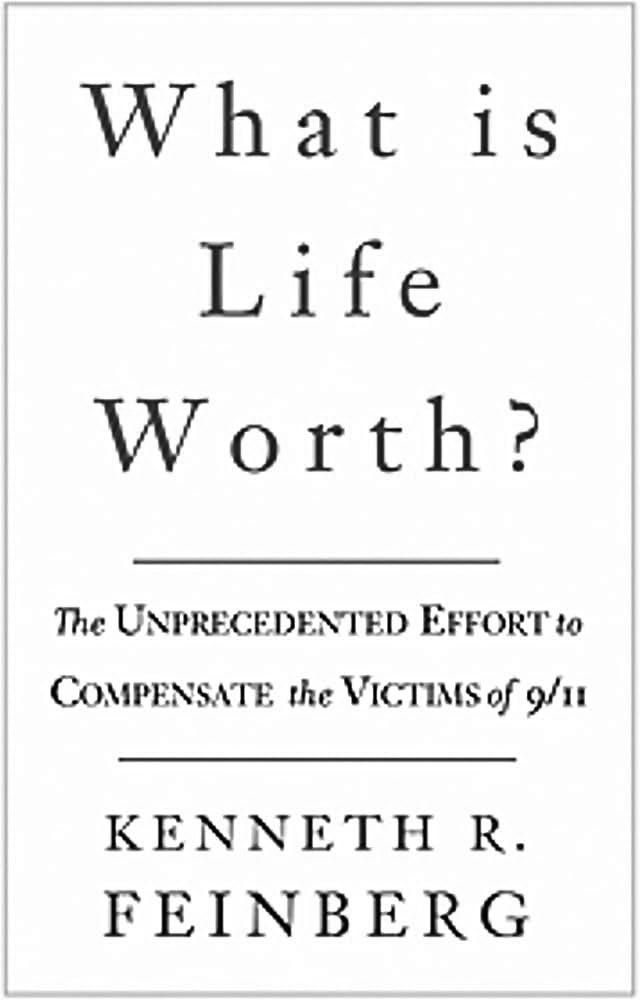
Although the fund was motivated by an outpouring of support for victims, it was also motivated by a different reality: shielding the airlines, the World Trade Center, and other actors arguably at fault for 9/11 from liability. Another section of the law capped the liability of the airlines and the World Trade Center. The fund was a way to provide compensation to victims without resorting to costly, protracted litigation in the hopes of receiving a portion of a limited recovery pool. The law therefore provided that victims had to waive their right to sue. As Feinberg sums up, this meant that in order for the fund to be successful, a majority of victims had to opt into it.
Feinberg worked hard from the get-go. He set up the program in a matter of weeks and then went about communicating it to all affected individuals and families. He held over 900 in-person meetings, tracking down each and every eligible claimant, including families of undocumented immigrants living abroad. His reflections on fairness, equity, and the ethics around compensation decisions are fascinating and evince a great deal of reflection on his part.
What really stuck with me, though, was what it took to get families across the finish line to sign on with the fund. Feinberg did an enormous amount of communicating with families and answering their questions.
I recently had the opportunity to hear Kenneth Feinberg tell his story at a conference exploring how sharing stories can support claim resolution. Almost 25 years after 9/11, the experience is clearly still top-of-mind; the stories Feinberg heard all those years ago have stayed with him. “I got the Special Master job because I’m a lawyer,” he said, “but to be successful, I had to be a rabbi and a counselor, too.”
Feinberg’s original goal was for 80% of eligible claimants to agree to participate in the fund. In the end, 97% of families who lost a loved one signed up with the fund instead of pursuing litigation.
Although 9/11 was over twenty years ago, and Feinberg’s work on the fund concluded long ago, the story still feels fresh and relevant. The book is an engaging read and a reminder of how people can come to consensus through mutual, respectful listening.
1 Feinberg, Kenneth R., What is Life Worth, PublicAffairs (2005). The book was reissued in 2021 in conjunction with the Netflix movie Worth starring Michael Keaton.
2 See the Air Traffic Safety and System Stabilization Act, P.L. 107–42—SEPT. 22, 2001, Title IV, Victim Compensation.

By: Clint Wren Legal Aid of East Tennessee

Anyone practicing in our field has a rule or statute that we know very, very well. It’s likely that this rule or statute determines how you practice and what your day-to-day looks like. For me, Tennessee Supreme Court Rule 21 is nearly tattooed on the back of my eyelid. Specifically, Section 4.08(c) has a decent chance of being inscribed on my tombstone given how important it is to me.
“The Commission may, at its discretion, award [a]n annual maximum of three (3) EP credits earned at the rate of one hour of credit for every five billable hours of pro bono legal representation provided through…approved legal assistance organizations.”
Legal Aid of East Tennessee, being one of those approved organizations, is one of the largest providers for EP credits for our bar. For those of you that have served previously at clinics or with clients directly, you will surely remember that I bother each and every volunteer for a signature, bar number, and typical hourly rate. This is because I get to report your time to the Commission and connect you with those much-needed credits.
Tennessee’s Supreme Court is uniquely and especially interested in serving Tennesseans through quality pro bono legal services. In networking with counterparts in other states, I can say that our Court, and the supporting bars, are unusually and wonderfully interested in furthering this purpose in comparison to other jurisdictions and states.
The Access to Justice campaign, created in 2008, was our Tennessee Supreme Court’s answer to a growing legal need for working poor and indigent Tennesseans. For those who want a quick shock to the system, 2008 was when Barack Obama was elected president, the Twilight saga was popular among high schoolers nationwide, and Beijing hosted the Summer Olympics. The Court has a decades-long history of finding ways to meet those needs.
With each year, that campaign has grown and evolved to meet the ever-changing needs of our communities. In particular, 2012 was when Rule 21 changed to include my favorite rule and its incentives.
Since the inception of the Access to Justice campaign in 2008, the world has changed dramatically. The needs, the system we practice in, and the expectations on us are not the same. What is the same, however, is that our bar and our field of work values justice and a commitment to serving our neighbors and our colleagues.
Although this article could be perceived as a ham-fisted advertisement for free CLE credits in exchange for pro bono services, I cannot stress enough how proud I am to be a member of this bar and a practitioner in our State. The flexibility, passion, and earnest desire to serve families in our area has kept me passionate and excited about this work.
The Access to Justice campaign is constantly rolling out new and inventive ways to serve people, our bar is leveraging new technology to create more efficient ways to help, and attorneys in this area are stepping up to the plate this year. This is an exciting time to get plugged in if you are not already. It’s my mission to make volunteering, and obtaining those CLE credits through volunteer work, as easy and painless as possible.
It’s May, and the Clock is Ticking
Everyone has that colleague who tries to pull off achieving fifteen hours of CLE in December. I imagine it can be done. You know what else can be done? Getting the CLE squared away before family trips, holidays, and the end of year rush. Believe it or not, we are approaching the halfway point of the year, and most attorneys I have spoken with are not halfway through earning their CLE credits.
Look at the boxes below, and you will see there are plenty of opportunities to continue – or start – working on those CLE hours through your volunteer work. If none of those suit you, or if you prefer a one-on-one service to clients, reach out and we can make something happen. I have no shortage of applicants for legal assistance, and our bar has no shortage of talent and commitment to our community.
This can be the year you have fifteen hours of CLE banked and ready to go before football season kicks off. You can be the attorney watching CLEs online for the love of the game.
Or you could wait. I need volunteers in December, too!
Legal Advice Clinic for Veterans: In person at the Public Defender’s Community Law Office at 1101 Liberty Street in Knoxville. Phone advice options available. • To sign up, please use the form on the KBA Website or email cwren@laet.org.
• Wednesdays, June 11, August 13, October 8, and December 10 Noon – 2:00 PM
Virtual Debt Relief Clinic: Via Zoom with specific dates to be announced soon. Contact cwren@laet.org if you are interested in participating.
Virtual Name Change Clinic: Via Zoom with specific dates to be announced soon. Contact cwren@laet.org if you are interested in participating.
Debt Relief Clinic: In person at the Public Defender’s Community Law Office at 1101 Liberty Street in Knoxville. • To sign up, please email cwren@laet.org. • Saturdays June 28, September 13, November 15 9AM – Noon.
Estate Planning Clinic: Lincoln Memorial University Duncan School of Law at 601 W Summit Hill Dr. Contact cwren@laet.org if you are interested in participating. • August – Specific Date TBD

By: Sharon Lee Special Counsel, Brock Shipe Klenk PLC Tennessee Supreme Court (Retired)
You may be wondering, what do judges’ chambers and homemade pimento cheese have in common? The answer is simple—Shelley Ward.
Shelley has been a part of the Knoxville legal community since 1983, serving as a legal assistant to some of Knoxville’s top lawyers: John Eldridge; Tom Dillard and Wade Davies at Ritchie Fels and Dillard; and John Winters and Will Carver at Kramer Rayson. In 2010, she began working in my Chambers as my administrative assistant. When I retired in 2023, she moved to the Chambers of Court of Appeals Judge Kristi Davis as her administrative assistant.
Judge Davis agrees that Shelley is by far the the quality of her work is outstanding. She is always thinking ahead, proofreader and editor in the business. In a nutshell, Shelley performs her


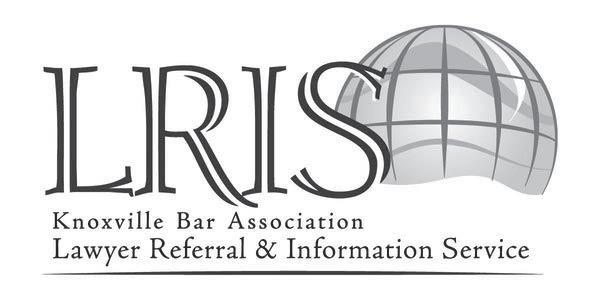
job to the highest degree of excellence with a great attitude. There is an added bonus with Shelley. She is an excellent cook. One of her specialties is pimento cheese. Using her mother’s recipe, Shelley has made and gifted her pimento cheese to friends and family in celebration of birthdays, Christmas, and in those “just because” moments. I have been the beneficiary of countless batches of homemade pimento cheese. (Banana bread, too, but that’s another story.) Through much encouragement by many, Shelley has started selling her pimento cheese, aptly named “Chambers Cheese”—inspired by Judge Davis and a spin on the Judge’s Chambers. Her pimento cheese is the perfect southern comfort food made in small batches with fresh ingredients. If you are a fan of pimento cheese as I am, Chambers Cheese is a must-try. Once you try Chambers Cheese, it will leave you wanting more. You can follow @chamberscheese on Instagram and also can be added to the monthly newsletter by emailing Shelley at thewards3@yahoo.com Chambers Cheese has been “judged” the best!

By: Sarah M. Booher
Tennessee Department of Human Services
Raise your hand if you’re tired. How’s that self-care going for you right now? Need a break? Or simply need a break from the outdoors where the tree, grass, and ragweed pollen are in a competition for who can be the most offensive? Say less. Just come cop a squat over here on this moderately-comfy couch I paid too much for at the height of COVID. I’ve got sodas, popcorn, a gallon of Blue Bell cookies and cream ice cream, and all the streaming services a girl could want (lovingly paid for by the man of the house1). With that, I give you some great shows (mostly comedies) to satisfy all your little lawyer’s heart’s desires, more or less in descending order of how much the “law” actually pertains to the show.
10. The Lincoln Lawyer: Okay, so I was initially mad when Netflix decided to roll out a series version of the Michael Connelly book after the success of the 2011 movie. I quickly forgave when I laid eyes upon the titular character, played by the gorgeous Manuel Garcia-Rulfo. This one is packed with all the Hollywood legal stuff – long-shot motions, surprise subpoenas, witness tampering, and, worst of all, the bar exam!
9. Jury Duty: If you missed this show when it first aired on FreeVee in 2023, get it together. Nominated for three Emmys, think The Truman Show meets The Office meets a hidden-camera prank show. Everyone on the series is an actor and everything that happens in the courtroom is planned, but “main character” Ronald Gladden, a solar contractor from San Diego, doesn’t know that. While the entire series may not have been a realistic portrayal of our legal system, all of us can appreciate the reallife absurdities of the opening scene’s voir dire.
8. White Lotus: Season 3 of Max’s (or, if you’re old and resistant to change like me – HBO’s) hit show just finished, and it was wild as ever. Better than 2, but still not as good as the first, this satirical show touches on issues of hush money, extortion, large gifts, money laundering and bribery, asset seizure, civil forfeiture, and extradition, but I think the best question to ask when you’re done is, “Hey, honey, want to go to Thailand next year???”2
7. MO: MO is easily one of Netflix’s most underrated shows. The brainchild of star Mohammed Amer and loosely based on his life, we follow a Texas resident as his Palestinian family awaits the results of their pending asylum request. Hysterical, but heartfelt, MO uses “comedy to create a shortcut to empathy.”3 Two seasons, approximately half-hour episodes, it can easily be consumed in bits, but you’ll find yourself binging it anyway.
6. Severance: From Apple TV+, this thriller is a little weird and sciencefiction-y, but isn’t most of the corporate world? Office employees have their memories surgically divided between their work and personal lives, and the first episode is called “Good News about Hell.” Yup, sounds like they nailed it!4
5. Apple Cider Vinegar: In a classic case of life imitating art, this one is

for my true crime and social influencer lovers. A cautionary tale about how misinformation spreads on social media, it is the story of two real life women who knowingly and willingly advocated for the use of ineffective wellness remedies to cure cancer. No jokes on this one, but if you aren’t already familiar with the powerhouse actress Kaitlyn Dever (Justified, The Last of Us, Last Man Standing, Dopesick), it’s time to see what all the fuss is about.
4. The Residence: Starring Uzo Aduba of Orange is the New Black fame (also a fantastic show about the American penal system), The Residence tackles the Executive Branch – and birdwatching. A classic whodunnit mystery, Aduba plays a quirky DC detective brought in to solve the murder of the White House’s chief usher, A.B. Wynter, but she’d rather be peering through her binoculars than rubbing shoulders with bigwig politicians. Who’s going to tell her that birds are really just drones sent by the US government to spy on us?5 Awkward.
3. What We Do in the Shadows: Now with six seasons under its cape, this hilariously offbeat show centers around four vampires who have lived together for hundreds of years on Staten Island. With a nod to their own legal system, the vampires are first sentenced to death by, but then appointed to, the global Vampiric Council, a centuries-old organization tasked with enforcement of ancient vampire code. Oh, come on, you always knew bureaucratic red tape was a soul-sucking enterprise.6 You just didn’t know it also sucked your blood.
2. Great British Baking Show: On this wildly popular competition reality show, twelve amateur bakers compete for the title of best baker and winner of, well, an engraved cake stand. That’s right, folks. Those lovely humans endure the miserable UK weather under a tent, for weekends on end, making delicious morsels for our viewing pleasure, only to win a cake stand. It’s delightful, and sometimes there are even competitors on there who are barristers in their real lives. <Shrug>
1. Ted Lasso: I’ve watched this show four times. Sure, it’s cheesy and Ted would absolutely drive me nuts in real life, but when I need my faith restored in humanity, it does the trick. There’s a couple of divorce issues in there momentarily, but, otherwise, it’s entirely free of the law, British or otherwise. I especially like peeping what Coach Beard is reading in each episode. If anyone ever finds a full list of his reads, let me know. Enjoy the show!
1 That’s right, the one who makes the delicious cheesecakes.
2 See also Scott Cacciola, Duke University Wants No Part of The White Lotus, N.Y. Times, March 31, 2025, at https://www.nytimes.com/2025/03/26/style/white-lotusduke-crimes-suicide.html.
3 Malak El-Gonemy, How Mo Amer and Ramy Youssef’s Netflix series “Mo” uses comedy to create a shortcut to empathy, Broadcasting Marginalized Voices (March 4, 2025), https://malakelgonemy.substack.com/p/how-mo-amer-and-ramyyoussefs-netflix.
4 Please don’t come for me. I love you.
5 See Alenya Rentz, Birds Aren’t Real*, HUB (Feb. 7, 2024), https://hub.jhu. edu/2024/02/07/birds-arent-real/.
6 Again, all in jest.

By: Miranda Goodwin Malia & Goodwin
Many KBA members are making a meaningful impact in our community through volunteer efforts. This column highlights not only the ongoing contributions of our members with the Volunteer Ministry breakfast but also through expanded opportunities to engage with community programs, such as CareCuts and Grow Free Tennessee.
Tarpy, Cox, Fleishman, and Leveille has been committed to helping the Volunteer Breakfast Committee since 2014. When Theresa Baggett, the office manager for Tarpy, Cox, Fleishman, and Leveille, was asked about the firm’s commitment to service she said, “Whether it is through a sponsorship or hands-on serving, giving back to our community is important to us. Service comes naturally working in the legal industry. Volunteer Ministries provides important services to help our community members, and we appreciate the opportunity to be a partner and help serve our community as well.” Our committee greatly appreciates their continued support over the last decade!
CareCuts of Knoxville: CareCuts is a non-profit organization powered entirely by volunteers, providing haircuts, hospitality, and essentials to individuals experiencing homelessness. Volunteers, including hair professionals, salon owners, and support staff, work together to provide not just physical care but also emotional support--helping people move forward from homelessness with dignity. The organization is currently seeking donations of powdered Gatorade, paper towels, ramen noodles, protein bars, and other essential items.
Grow Free Tennessee - Family Table Program: Grow Free Tennessee, part of the Community Coalition Against Human Trafficking, works to end human trafficking through awareness, training, and support for survivors. Through the organization’s Family Table program,
Please note the following changes in your KBA Attorneys’ Directory and other office records:
Terri Daugherty
BPR #: 032949
Law Office of J. Chad Hogue
320 Seven Springs Way, Suite 250 Brentwood, TN 37027-4572
Ph: (865) 3824-4666
Terri.Daugherty@libertymutual.com
Dominic A. Garduño
BPR #: 038518
Dominic A. Garduño Attorney at Law, PLLC
4315 Kingston Pike, Ste. 210 Knoxville, TN 37919-2066
Ph: (865) 686-9575 dominic@attorneygarduno.com
Sequoya Faith Held
Held Law Firm 8116 Pepperdine Way Knoxville, TN 37923-1252
Ph: (865) 201-8358 faith@heldlawfirm.com
Nicole Schell Klapka
BPR #: 036479
Law Firm of Nicole S. Klapka, P.A.
230 Brooklawn Street, Apt. 310 Knoxville, TN 37934-2025
Ph: (352) 428-9519 nicole@klapkalaw.com
volunteers can provide a warm meal to individuals staying at the organization’s safe house. Volunteering with Grow Free Tennessee helps empower those on the path to healing and restoration, supporting survivors as they rebuild their lives.

For both of these programs, the Volunteer Breakfast Committee is available to assist with logistics via sponsorship, whether shopping for and delivering items needed for CareCuts or preparing and delivering meals for the Family Table program, offering members the opportunity to get involved if the time commitment to prepare or deliver items or meals isn’t feasible. We are asking for monetary donations so the committee can help both of these wonderful programs.
Volunteering is a powerful way to serve others, and our community benefits when we come together for causes like these. Whether it’s through regular efforts like the Volunteer Breakfast Committee or new initiatives like CareCuts and Grow Free Tennessee’s Family Table Program, there are many opportunities to make a difference. We encourage you to consider how you can get involved and help make our community stronger. To get involved or learn more, please contact the co-chairs of the Volunteer Breakfast Committee, Bridget Pyman at bpyman@arnettbaker.com, and Miranda Goodwin at mirandagoodwin@ gmail.com.
Matt R. Knable
BPR #: 034587
Banks & Jones
2125 Middlebrook Pike Knoxville, TN 37921-5855
Ph: (865) 546-2141
mattknable@banksandjones.com
Elizabeth A. Martin
BPR #: 030670
Diverse Concepts
1900 N. Winston Rd., Suite 300
Knoxville, TN 37919-3605
Ph: (865) 584-4245 bmartin@dclfood.com
Trevor Latting
BPR #: 040472
Paine, Bickers, Elder, King & Williams, LLP
900 South Gay St., Suite 200
Knoxville, TN 37902-1821
Ph: (865) 525-0880
Stephen E. Roth
BPR #: 012233
Red Stag Fulfillment
2160 Northshore Dr., Suite 200
Knoxville, TN 37922
Ph: (865) 323-4754
steve.roth@redstagfulfillment.com
By: Parker Bohne
LMU Duncan School of Law
J.D. Candidate, 2026
The Atmosphere
Crafty Bastard Brewery’s “headquarters” at 6 Emory Place is a laidback, quirky haven for craft beer lovers. The brewery has an undeniable industrial charm with its smooth concrete floors and painted-white brick walls, paired with a large garage door that opens up to let in natural light during warmer months. This creates a bright and airy atmosphere perfect for daytime visits. By night, the space transforms with the soft glow of overhead string lights, giving it a cozy, inviting feel. Whether you’re inside or out, there’s ample seating for the whole family, and there are dog-friendly areas both indoors and outdoors, complete with a comfy dog bed for your pup to relax after a fun day out.
The brewery embraces a vintage and charismatic vibe, with eccentric, colorful decorations and artwork scattered across the walls and tables. The eclectic mix of décor, paired with a large collection of boardgames and a small TV with a VCR (and a library of tapes to pop in, of course), gives Crafty Bastard a fun, offbeat personality. The brewery also hosts a variety of events, from game nights and trivia to live music and monthly bike rides to Competitive Romance Novel Reading (yes, there’s even a cash prize, but you may want to leave your kids at home for that one). The atmosphere encourages guests to unwind, enjoy a craft beer, and take part in the vibrant, community events that make Crafty Bastard a unique spot in Knoxville.
But the fun doesn’t stop once you leave downtown Knoxville— Crafty Bastard has a second location in West Knoxville at 9937 Kingston Pike.
The Brews
Crafty Bastard Brewery is a small-batch brewery and offers a diverse and exciting beer selection—from traditional to experimental—making it a must-visit for any craft beer enthusiast. With options ranging from IPAs to porters, there’s something for everyone. Standouts include the Hop-Podge Imperial IPA and Hoppy Little Accident Double IPA— both pack a punch with bold flavors and a high ABV. If you prefer something a bit lighter, the Crispy Boi Light Lager and La Chela Mexican Lager are perfect refreshers for sipping on a warm day. If you’re in the mood for something unique, try the Asian Pear Seltzer or Tessellation IPA, a collaboration brew with a West Coast twist.
The brewery also keeps things interesting with seasonal and experimental options like the Rubescent Rumors Kreik Sour and the Zest Dressed Berliner Weisse, both offering refreshing fruit-forward flavors. If you’re a fan of dark beers, the Imperial Milkstout is sure to hit the spot with its smooth, creamy finish. Whether you’re looking for something light, hoppy, or rich, Crafty Bastard has a beer to match your mood, along with non-alcoholic options like “Hop Water”—and classic soda or juice selections—for those who want to join in on the fun without the booze.
While you’re enjoying your Crafty Bastard brew, you may find yourself tempted by the aromas of Cajun and Creole cuisine coming from Saint Lucille’s Kitchen next door. Saint Lucille’s began as a collaboration between Crafty Bastard and Last Days of Autumn Brewing, another local Knoxville brewery. So, when you make plans to go check out Crafty Bastard, make sure you go hungry. The great minds behind the collabo-


rative effort have thought of everything—even QR codes on the tables at Crafty Bastard for ease of ordering Saint Lucille’s gumbo or red beans and rice, and table numbers so the great staff at Saint Lucille’s can bring the food right to you.
THE KNOXVILLE BAR ASSOCIATION IS PLEASED TO WELCOME THE FOLLOWING NEW MEMBERS:
Anne Johnson
Butler Sevier Hinsley & Reid PLLC
Rhonda Lee
The Law Firm of Rhonda F. Lee
Micah F. Vest
Sobieski, Messer & Elledge, PLLC
Ashley R. Anderson
Heather L. Brewer
Jordyn Dikey
Taylor French
Leah Holley
Cheyenne Peters
Alec Sears


By: Brooke Lawson VP and Private Client Relationship Manager, First Horizon Bank Amber Young VP and Senior Trust Officer, First Horizon Bank
When it comes to managing fiduciary accounts, whether for a trust, estate, or guardianship, attorneys play a critical role in establishing the legal framework. But once those structures are in place, ongoing financial oversight is important. That’s where a trusted banking partner, like First Horizon Bank , steps in to collaborate with attorneys and provide seamless financial management.
“Having a partner that understands both the legal framework and the financial nuances of fiduciary accounts is crucial as markets and client needs evolve,” explains Brooke Lawson, Vice President and Private Client Relationship Manager at First Horizon Bank. “At First Horizon, we provide attorneys with the expertise and support they need to make sure their clients’ financial interests are well-protected.”
The Role of a Bank in Fiduciary Accounts
Fiduciary accounts are essential for managing assets on behalf of third parties, such as beneficiaries or estates. Attorneys create the legal structures, while banks handle financial management, investments, tax reporting, and compliance with instructions in the governing document.
“Each client’s situation is unique, so the approach taken for each situation should be uniquely tailored to the client’s situation,” says Amber Young, Vice President and Senior Trust Officer at First Horizon. “At First Horizon, we offer a personalized strategy, drawing on our expertise in investment, financial planning, and trust management.”
What sets First Horizon apart is its localized trust division and comprehensive team approach. The bank’s dedicated professionals understand the complexities that attorneys face and ensure responsive, seamless, and proactive service.
While well-meaning, individual trustees — often friends or family — can face significant challenges: limited time, financial inexperience, or emotional involvement. Corporate trustees, like First Horizon, on the other hand, offer professional, unbiased administration and longterm stability, which is important for complex or multigenerational trusts.
• Expertise and Resources: Corporate trustees bring deep knowledge of financial management, investment strategy, tax reporting, and fiduciary law. With dedicated teams and strong infrastructure, they are equipped to handle the complex responsibilities that come with trust administration.
• Objectivity and Impartiality: Family relationships can complicate trust decisions, especially when emotions or differing opinions come into play. A corporate trustee offers a neutral, third-party perspective, administering the trust according to its terms and in the best interest of all beneficiaries without
bias.
• Long-Term Stability: Individual trustees may become unavailable due to life changes, health issues, or even death. Corporate trustees, by contrast, provide institutional continuity and are structured to serve across generations. This is a major benefit for long-term or multi-generational trusts.
• Risk Management: Administering a trust carries legal and financial risks. Corporate trustees operate under strict regulatory oversight and internal controls.
• Efficient Administration: Trust management involves significant administrative work, from investment oversight to tax filings and regulatory compliance. Corporate trustees have the systems and staff in place to manage these tasks efficiently and reliably.
Partnering with a bank’s trust services offers some unique advantages for attorneys handling fiduciary accounts.
Here’s how this collaboration can support an attorney’s practice:
• Strategic Insight and Support: Attorneys working with a bank gain access to experienced trust professionals who offer practical input on long-term administration to help minimize issues down the road.
• Expanding Client Solutions: Banks can step in for complex fiduciary scenarios, like special needs trusts or charitable foundations, so attorneys can stay focused on legal strategy while still offering clients a complete, efficient solution.
• Co-Trustee and Directed Trust Models: When a client desires the attorney to serve as trustee, a bank can complement this role by acting as co-trustee. The document can name the bank as co-trustee to handle the financial administration while the attorney co-trustee oversees legal compliance and court reporting if required. This model leverages the strengths of both professionals, creating a balanced and well-managed approach to fiduciary relationships.
• Guardianship and Conservatorship Support: In cases where a fiduciary is appointed by the court, banks can step in as guardians of the estate. Banks manage assets and maintain ongoing compliance, while attorneys maintain responsibility for legal oversight and reporting. This collaboration helps streamline the process for handling legal and financial duties.
Knowing when to involve a financial institution can greatly benefit clients and practices. Here are some scenarios in which bringing in a banking partner makes sense:
• Complex Assets or Investment Needs. When a trust or estate continued on page 29
By: Sarah M. Booher Administrative Judge Tennessee Department of Human Services
Although the details are fuzzy in my brain now, sometime during my 3L year of law school, Dean Gary Wade was interviewed by a Knoxville publication, and he made mention of the fact that LMU’s Duncan School of Law was producing small-town, country lawyers. I was incensed. As a member of the first class admitted since the school was denied accreditation, we were used to having people look down their noses at us. This time, it felt like it was coming from within our own family. It felt like that’s all he thought we – and the school – were capable of.
I didn’t, and still don’t, have any ill will toward small-town, country lawyers.1 I grew up in a tiny town of 875 people. When my parents moved us to an only slightly larger Virginia community years later, we had two lawyers in our church, both brilliant, passionate people whose love of the law knew no bounds. Nevertheless, I took it as a slight, and Dean Wade was kind enough to take it when I let him have it about that and a few other things I had on my mind.
Now that the school has achieved the full accreditation it deserved and I am nearing a decade of practice under my belt, I have relaxed and can appreciate the true spirit of Dean Wade’s words, even if they weren’t his usual level of eloquence. As a member of a Knoxville-based, personal injury law firm when I began practicing, we took cases far and wide in Tennessee. Sometimes that was Nashville. Other times, it might be Bluff City. And no case was too small. Now that I’m out of private practice and at the Department of Human Services, I telephonically hear cases in every nook and cranny of the state. I’ve received significant education over the past 29 months in Volunteer State communities and rural areas often described as a wide-spot in the road – “blink and you might miss it.” In fact, it is not uncommon for me to be in Knoxville, the Department
continued from page 28
involves high-value or non-traditional assets such as real estate portfolios, private equity, or collections, banks have the infrastructure to manage valuation, tax compliance, and ongoing administration. They also offer professional investment management for portfolios that require strategic oversight and risk management. Example: A client’s trust holds commercial real estate and rare artwork. The bank’s fiduciary team can handle everything from maintenance to appraisals and regulatory filings.
• Challenging Family Dynamics. Emotions can run high when family members serve as trustees. A bank provides impartial administration, helping diffuse tension and maintain objectivity, especially when beneficiaries have conflicting interests or strained relationships. Example: In a blended family, one beneficiary wants to sell the family home while another wants to keep it. A corporate trustee can navigate the conflict by making decisions based on the terms of the trust, not personal opinions.
• Long-Term or Multi-Generational Trusts. Trusts designed

witness to be in Jackson, and my appellant to be in Grundy County, for example.
So, in the literal sense, I am just as much a rural lawyer as I am a Knoxville, “big city” lawyer. My practice area is all of Tennessee. More importantly, I am wherever an appeal is necessary. But in the metaphorical sense, getting to the point he was likely really making at the time, in my heart of hearts I am the “small-town, country lawyer” that Dean Wade referenced in his interview. I will always root for the “little guy.” I grew up the youngest daughter of an Episcopal priest. I picked LMU because of its focus on underprivileged and underserved communities. I became a lawyer because I wanted to really serve my community. And every day since I was sworn in with my limited license under the dedicated work of Leif Jeffers and Tina Sloan at the 8th Judicial District Public Defender’s office, I have been privileged to walk legally with the residents of this great state who are so often overlooked and disregarded. When I go into the grocery store and the price of food takes my salaried breath away, I know I did what I could that day to give wage-and-hour folks the fair hearing they deserved for participation in the SNAP program.2 And every time I am asked to be a legal advisor or sit on the board of a local nonprofit, whether I accept or not, I look up at that Lincoln Memorial University diploma and thank my lucky stars. I am precisely, geographically and professionally, where I was always meant to be.
1 I wrote a memorial of one such fellow in the October 2024 DICTA issue.
2 Often referred to by its outdated moniker, “food stamps,” the program is actually called Supplemental Nutrition Assistance Program – and stamps haven’t been used since 1998!
to support multiple generations or family businesses require continuity and long-range planning. Banks offer institutional stability and succession planning that individual trustees may not be able to provide. Example: A trust was established to support a family business across three generations. A bank’s trust team can guide succession planning, manage distributions, and facilitate transitions between account administrators over time.
Attorneys and their clients need a partner that is knowledgeable, proactive, and responsive.
“Our team provides tailored solutions and regular updates to keep fiduciary accounts on the track despite external challenges.” says Lawson.
By leveraging First Horizon’s expertise, attorneys can offer their clients comprehensive, personalized support to manage fiduciary responsibilities with care throughout the course of administration.

By: Sherri DeCosta Alley, JD, CTFA
I did not grow up around lawyers. There were none in my family, and, to my recollection, I did not even personally know or routinely interact with a lawyer until I enrolled in a business law class during my undergraduate education. Yet, even as a child, I wanted to be a lawyer because of my love for this country and its foundational principles of guaranteeing individual rights and a citizen-led government. Below I share the story of why I became a lawyer and my personal opinion1 about a very serious present danger to our society that requires courage and action from the bar.
Two of my great-grandparents immigrated (separately) to the United States from two islands in the Azores (part of Portugal) as teenagers near the dawn of the twentieth century. They met, married, and settled in a small Rhode Island town in a neighborhood full of Azorean immigrants. They worked in textile factories, bought a house, and raised six children. I remember my great-grandmother, who died when I was seven years old, asking about my grades at school and then reminding me to study hard and get an education “so you can understand the rules of this country and make a good life.”
One of their daughters (my grandmother) married a man who also descended from Azorean immigrants and grew up a just a few blocks from her childhood home. They moved into the other half of the duplex owned by my great-grandparents and together, they worked in factories, learned to drive, owned a family car, raised five children, cared for their aging parents, and provided after-school care for my sister and me. My grandfather served as a cook on a ship in the Navy in World War II. Two of their sons went on to careers in local law enforcement and another spent his career with the Military Police of the United States Marines. While we often celebrated our Portuguese heritage, we were very proud Americans. I have fond memories of watching my grandfather hoist or lower the Stars and Stripes on the flagpole that stood in their front yard. Even as a young child, I remember my chest swelling with national pride as I marveled at the tulips lining their driveway one spring and saw a gust of wind unfurl the flag on that flagpole behind them. The image remains clearer in my mind than any photograph currently on my fancy phone.
Thus, as a proud American descended from immigrants, seven years after graduating from high school, I began my studies at the University of Tennessee College of Law. I believed that here in the United States, if you are smart and will study hard, you can become a lawyer and thereby help people to understand and protect their rights. Upon graduating, and again when I learned I passed the bar exam, I thought of my greatgrandmother—the teenager who boarded a ship for an unknown land and set in motion my family’s American Dream. Even in the more than twenty years since, what makes me proud to be a lawyer is that we, along with our judicial colleagues, were and are the protectors of the individual rights enshrined in the United States Constitution. We, who possess the knowledge and training to navigate the legal system created by the Constitution for the purpose of guaranteeing those individual rights, are
the bulwark against tyranny and governmental oppression. Indeed, the oath we take in Tennessee upon admission to the bar recognizes this role implicitly by promising to “support the Constitution of the United States and the Constitution of the State of Tennessee.”
But today, I personally fear for the stability of our American legal system and the rights guaranteed in our Constitution because the lynchpin of our legal system—the right to due process—appears to be completely disregarded for certain segments of the population. There is no more fundamental right in protecting the populace from tyranny and oppression by the government than that of due process.
Both the United States and Tennessee Constitutions contain this core protection of due process, though with different wording. The Fifth Amendment to the United States Constitution uses this language: “No person shall . . . be deprived of life, liberty, or property, without due process of law.” Similar protection is enshrined in Article I, Section 8 of the Tennessee Constitution, which declares the right “[t]hat no man shall be taken or imprisoned, or disseized of his freehold, liberties or privileges, or outlawed, or exiled, or in any manner destroyed or deprived of his life, liberty or property, but by the judgment of his peers, or the law of the land.”
Due process requires the government to bear the burden of providing proof (to the required standard depending on the right in jeopardy) of its claims and provides an individual’s right to be heard before a neutral and independent arbiter before losing the right to life, liberty, or property. It is a key right that differentiates our governmental system from dictatorships and monarchies where a sovereign leader can take a person’s property, liberty, and life simply because the sovereign so desires. Without the right to due process, anyone can be “disappeared” off the street, and there is no mechanism for protecting any of the liberties we enjoy as individuals.
Several federal judges are acting to protect due process rights in cases pending before them. Lawyers also need to act and not just in their professional capacities! Now is the time for lawyers, as esteemed members of many communities, to use their social positions and influence to educate and remind all that due process protects the rights of all of us. If our due process right is trampled to the ground, the deleterious effects will imperil American society as a whole and completely tarnish our American example to the world. It is foundational to our system of government under the rule of law.
For the sake of my children, the memory of my great-grandmother, and all those like her throughout the world, I pray we as lawyers all stand up, speak up, and act up, if necessary, in defense of everyone’s right to due process in the United States.
1 This article is written from my personal point of view, based solely on my personal opinions and experiences. Nothing herein is endorsed by nor should be attributed to or in any way reflect upon my employer, the Knoxville Bar Association (KBA), or any committee of the KBA.
By: Robbie Pryor Pryor, Priest & Harber
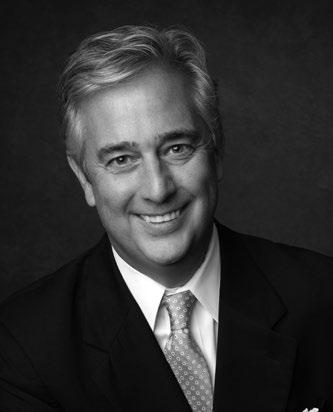
Editor’s Note: It is with both sadness and gratitude that we publish this final column from Robbie Pryor’s Outside My Office Window series. Robbie, thanks for seven years of laughter, tears, and lessons.
I believe this storm will move on I can see y’all have been rained upon You’re just like me, soaking wet and set free with endless paths to walk along. Live with Less - John Craigie
Maybe time running out is a gift… If We Were Vampires - Jason Isbell
This column has been a love story. All of it. The seven years of writing this column have been an opportunity to share - perhaps overshare - my love of family, friends, my profession, and colleagues while offering observations of life. When Marsha asked me to write a monthly column, I provided only one rule - Nothing about law. This has been a quest to find a connection with you through a monthly, 1000word exercise of self-exploration. Stupid? Insane? Arrogant? Maybe all the above. I prefer brave. Can you imagine a task as daunting as writing a monthly column about life for a community of people born with a competitive heart and suspicious eye, further enhanced by deliverance through a cutthroat education to an inherently adversarial profession? Easy stuff (smiley face emoji). I started with the hope that maybe, just maybe, you’re a bit like me. Perhaps you too have come through a storm. I hope you’ve found some truth and a bit of yourself in these pages and these years. If so, we are connected. That is all I ever desired. As for the meaning of life…
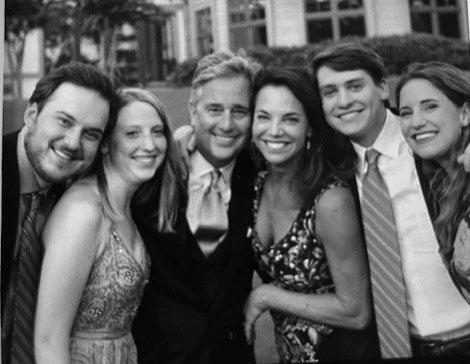
his shoes and loving Shelby. She effortlessly became “Mommy” and has graciously raised them all with a ghost peering over her shoulder. She has all along inspired me to become something more resembling the me I had been while building our family into something stronger than the silly word “blended” would suggest. My kids and I were not the only ones who fell in love. For the last 23 years, Cheryl’s parents talk to Nancy weekly. “I love yous” are exchanged at the end of each call. They and my parents view her as a daughter. By embracing the thing that happened, the perspective it gives, and accepting the extraordinary love Nancy provided, I began to see things that had previously been out of focus. She adjusted my prescription, focused my focus, and the beauty and importance of things came into the clear. Only through the wound.
I’ve written about the view - Kindergarten artwork of grown children on morning coffee cups; a dying mother-in-law’s love of key lime pie; and a golden retriever eating half a dozen Krispy Kremes after a bad diagnosis. I am able to see Dennis Francis’s ghost walking the halls of this office and listen carefully to hear the sound of Pam Reeves’ gracious and kind voice at Bar meetings. I can conjure a vision of Zane Daniel, sitting at the foot of his deathbed, recording a final beautiful message of friendship to my father. I more clearly recognize missed opportunities - I sure wish I’d known Nick McCall better. His death makes me want to know you better. The clock is ticking. The prescription allows me to see and share the brilliance of an opponent in the midst of my own defeat and illuminate the humanity and kindness burning inside the brash, bruised, but never-say-die lion, Herb Moncier. What happened to me? Loss and love, I suppose - parental, familial, friendship, and especially, the love of two extraordinary women.
In the summer of my grief, a quarter of a century ago, I’d read everything humanly possible from child psychologists and grief experts and written in enough journals and stacks of cards to know that a perpetually grieving parent can pose a greater threat to his young children’s mental health and development than the absence of a deceased parent. So, I walked into the wild. One step in front of the other. No alternative. And that’s where I found her.
Halley’s Comet comes around but once in a lifetime. If you’re inside feeling sorry for yourself, you’ll miss it. Nancy Ackermann simply walked into the health club and said, “Hi.” And, just like that, I was reminded of the way light attaches to a girl and how a smile can generate more electricity than the entirety of the TVA. What followed was and continues to be the love of my life. If not for my immersion into the meaning and understanding of the thing that happened, I would’ve missed Nancy altogether. My heart aches thinking about what I would’ve missed had I not taken the first steps. One lunch and two Latin dance classes later, it was over. In 2002, we married in the same spot that I had married and eulogized Cheryl. Our vows were exchanged in front of four kids (ages 2-8), all staring up at us with that “What in the world are you thinking?” look in their eyes. With no shortage of chaos and hilarity, we saddled up and rode the light fantastic. She pushed me to write, to publish, something I’d never done, all the while teaching Andy to tie
As the Jason Isbell song suggests, Nancy and I know one of us will have to spend some time alone. We talk about it. We embrace the meaning of the ticking clock. Time running out is a gift if you understand. We chase bands, hold hands, and lately, sit in the stands at the new Smokies stadium and watch baseball beneath a spring Tennessee sun. She’s a listener and first reader, a wise and gentle flower child who will break your leg to win and feel your losses as her own. We binge on reality TV, books, and the dog park. She is the voice of reason and my partner in crime. The kids. It’s always about the kids. They call her first. Because I ran to loss, because I believed there would be a path, I became not only the father of the two Cheryl gifted to me, but a step-dad (I call myself their Dad) to two. I cannot imagine my life without these kids. They’re all beautiful, loving adults who are getting married at a current rate of 1.5 a year. And though, like everyone, I’ve stumbled, struggled, and fallen, I’ve become better at extending grace to myself and others. There are no doubt others who have climbed higher mountains from deeper holes, but I only know one’s path and I’ve shared it. I’m going to become more of a reader now. Thank you for reading.
So what is the meaning of it all? I promised it to you. I’m sorry, but I don’t know the meaning of it all. I do know where you can find it. It rests somewhere between the realization of the ticking clock and the universal truth that love (in its many forms) is the only thing that matters - now, in the end, and forever. Let’s keep looking.
